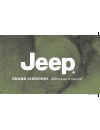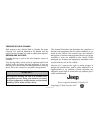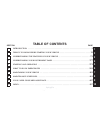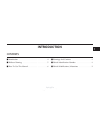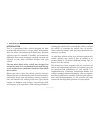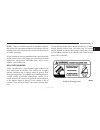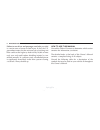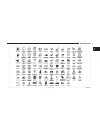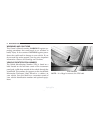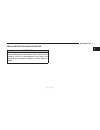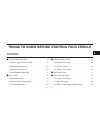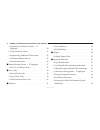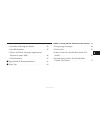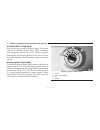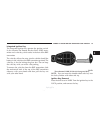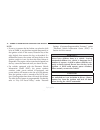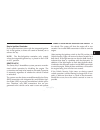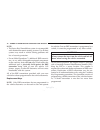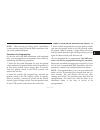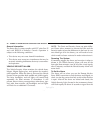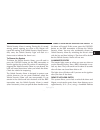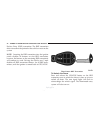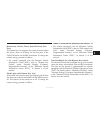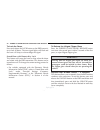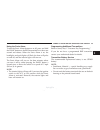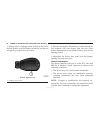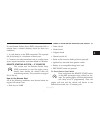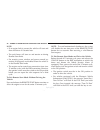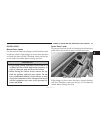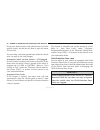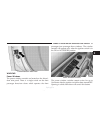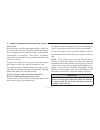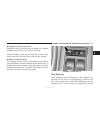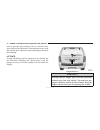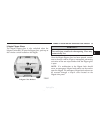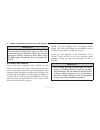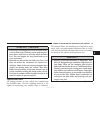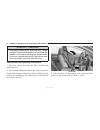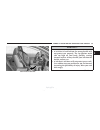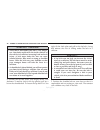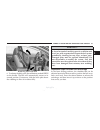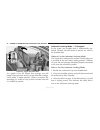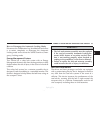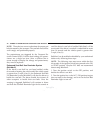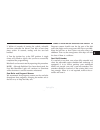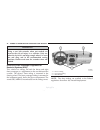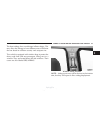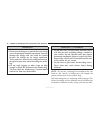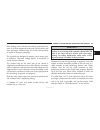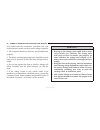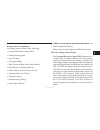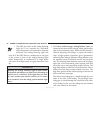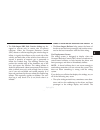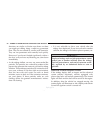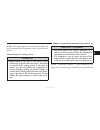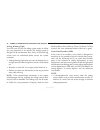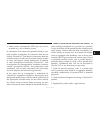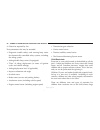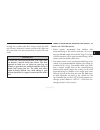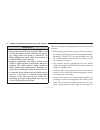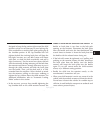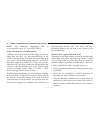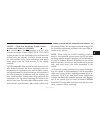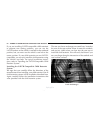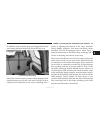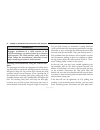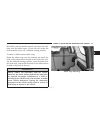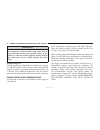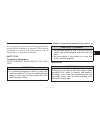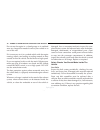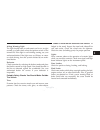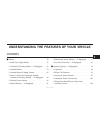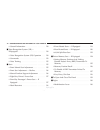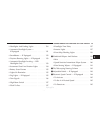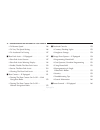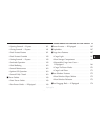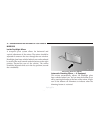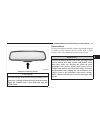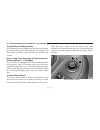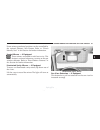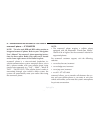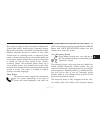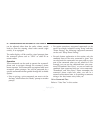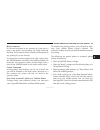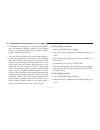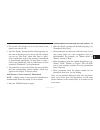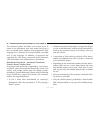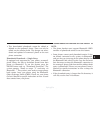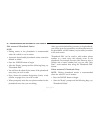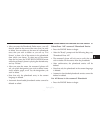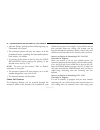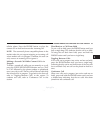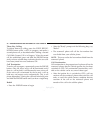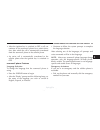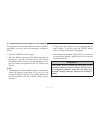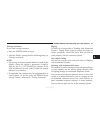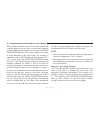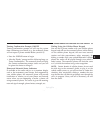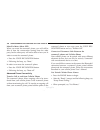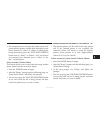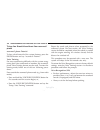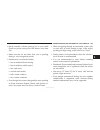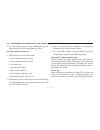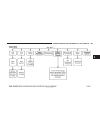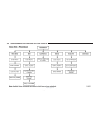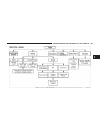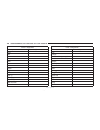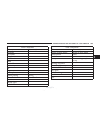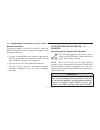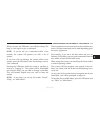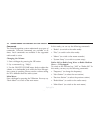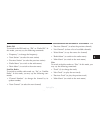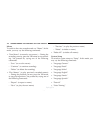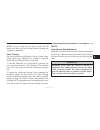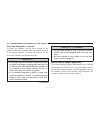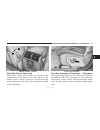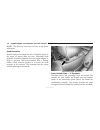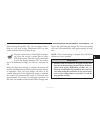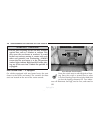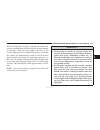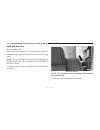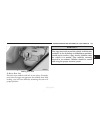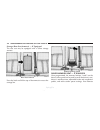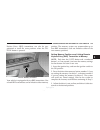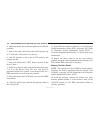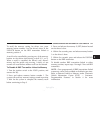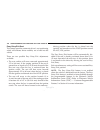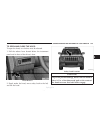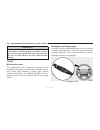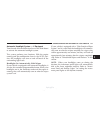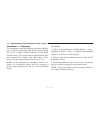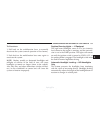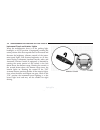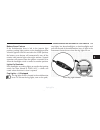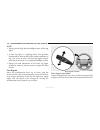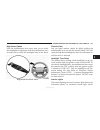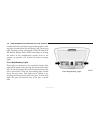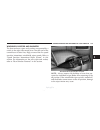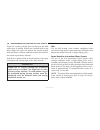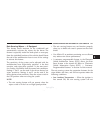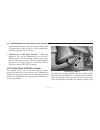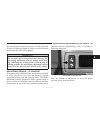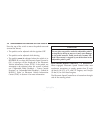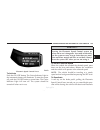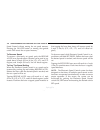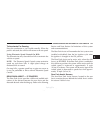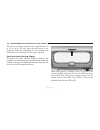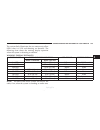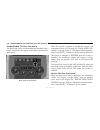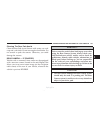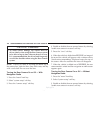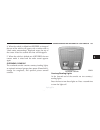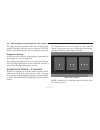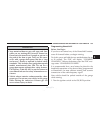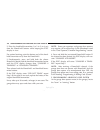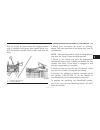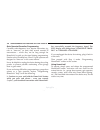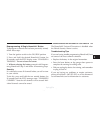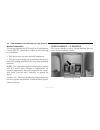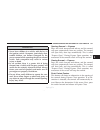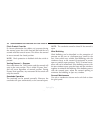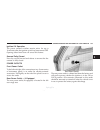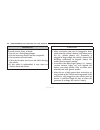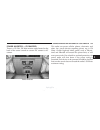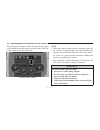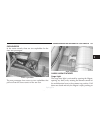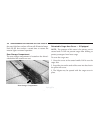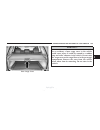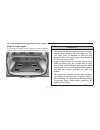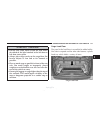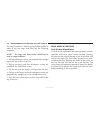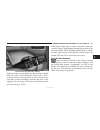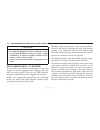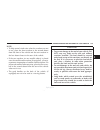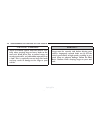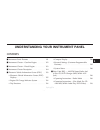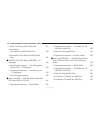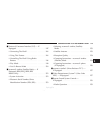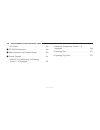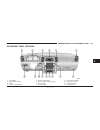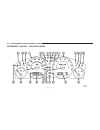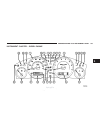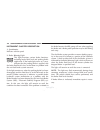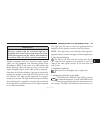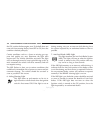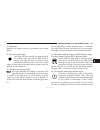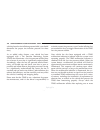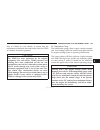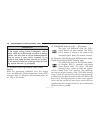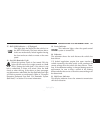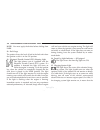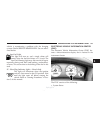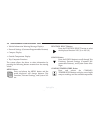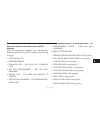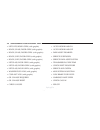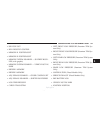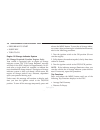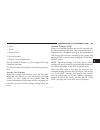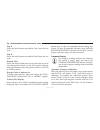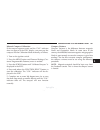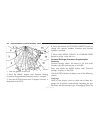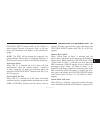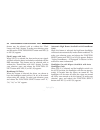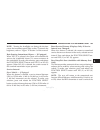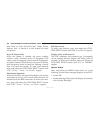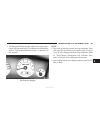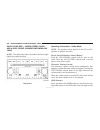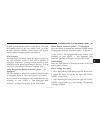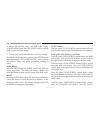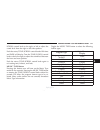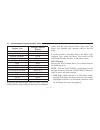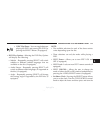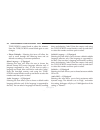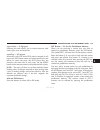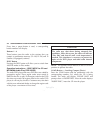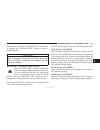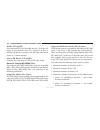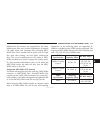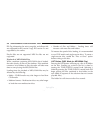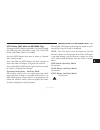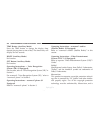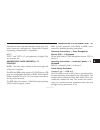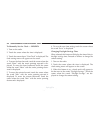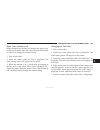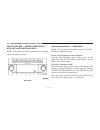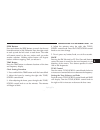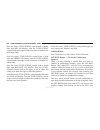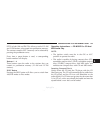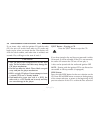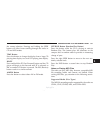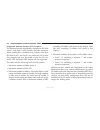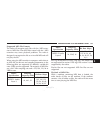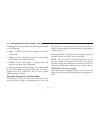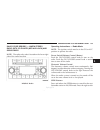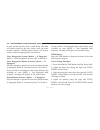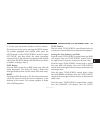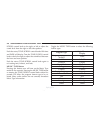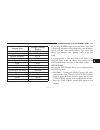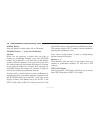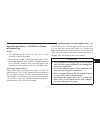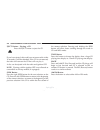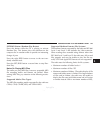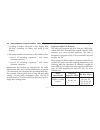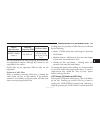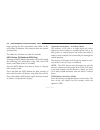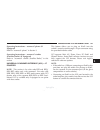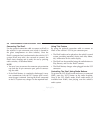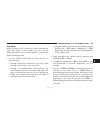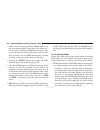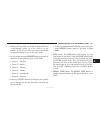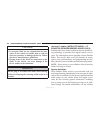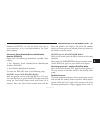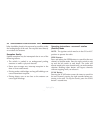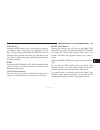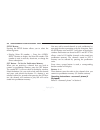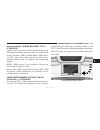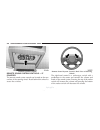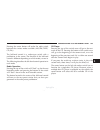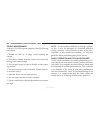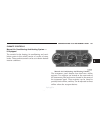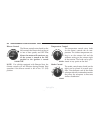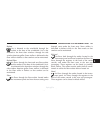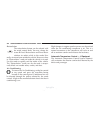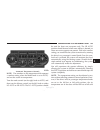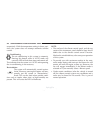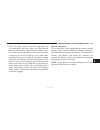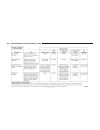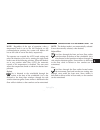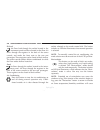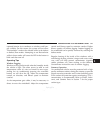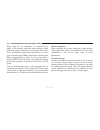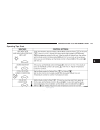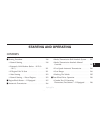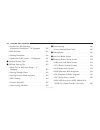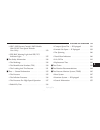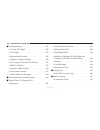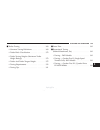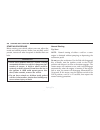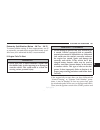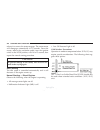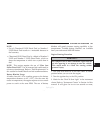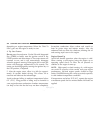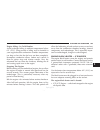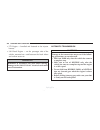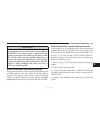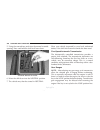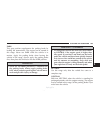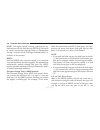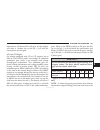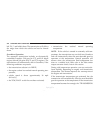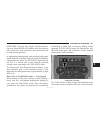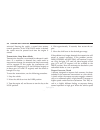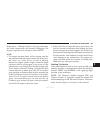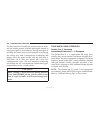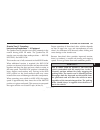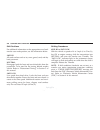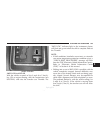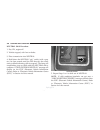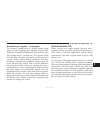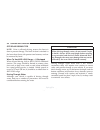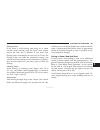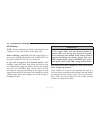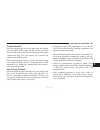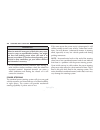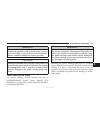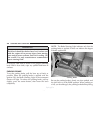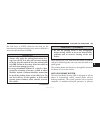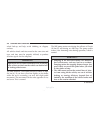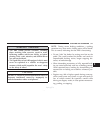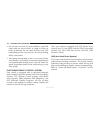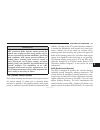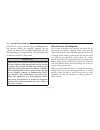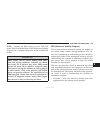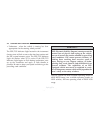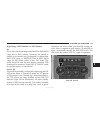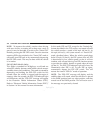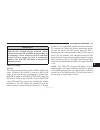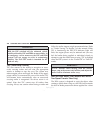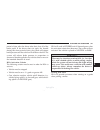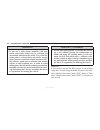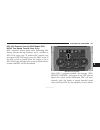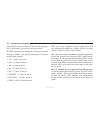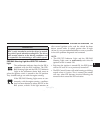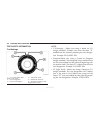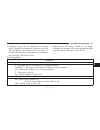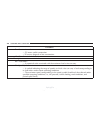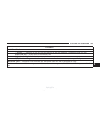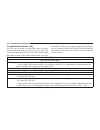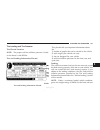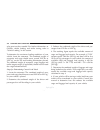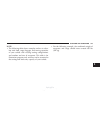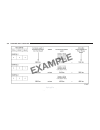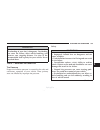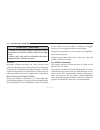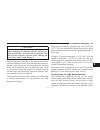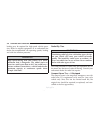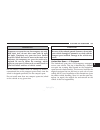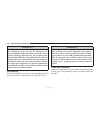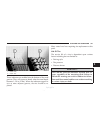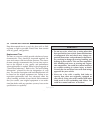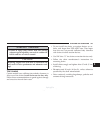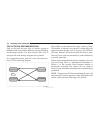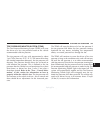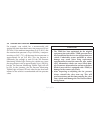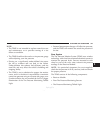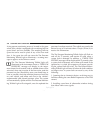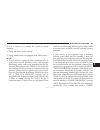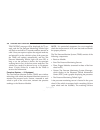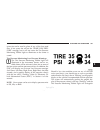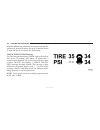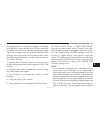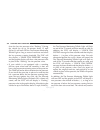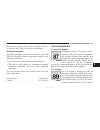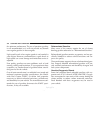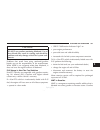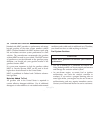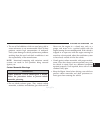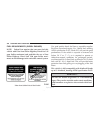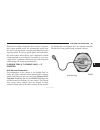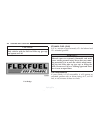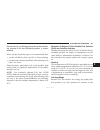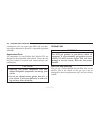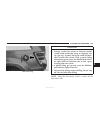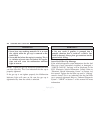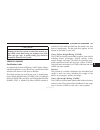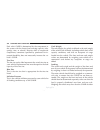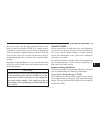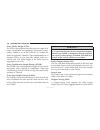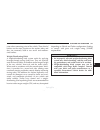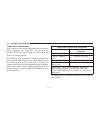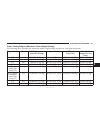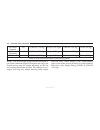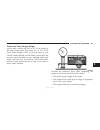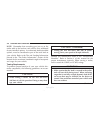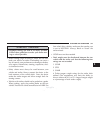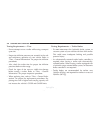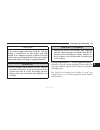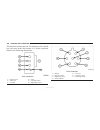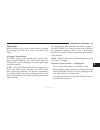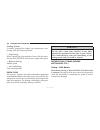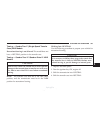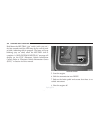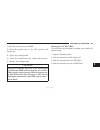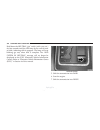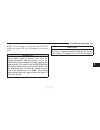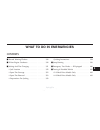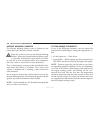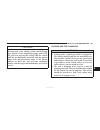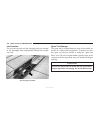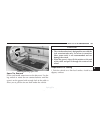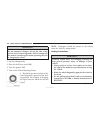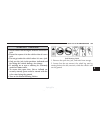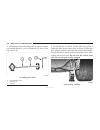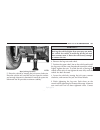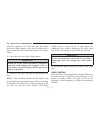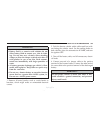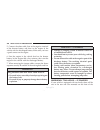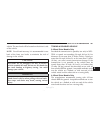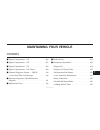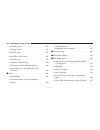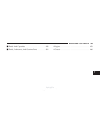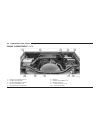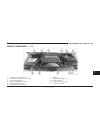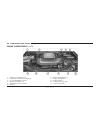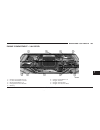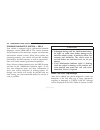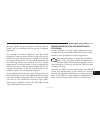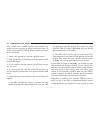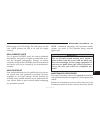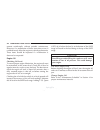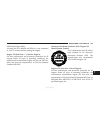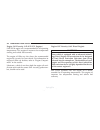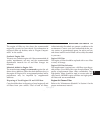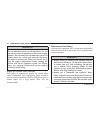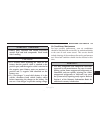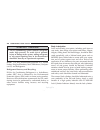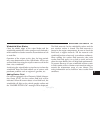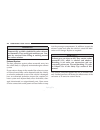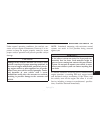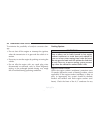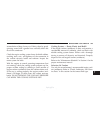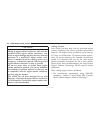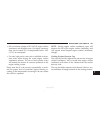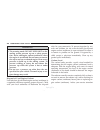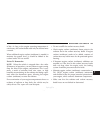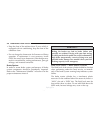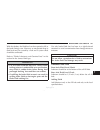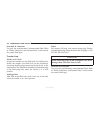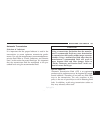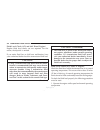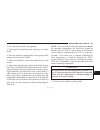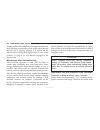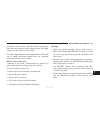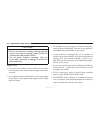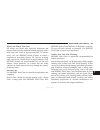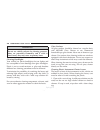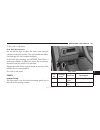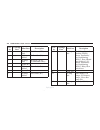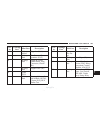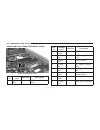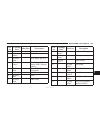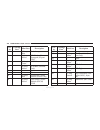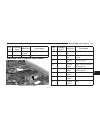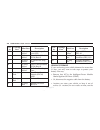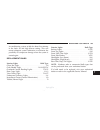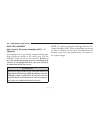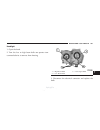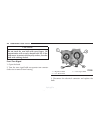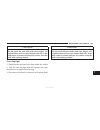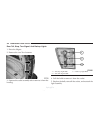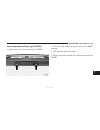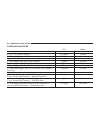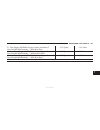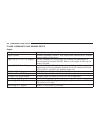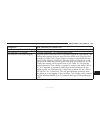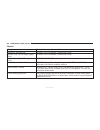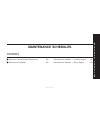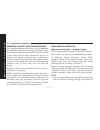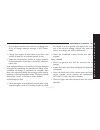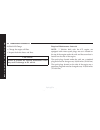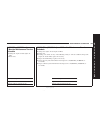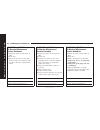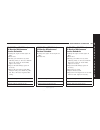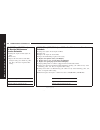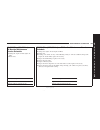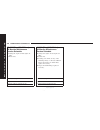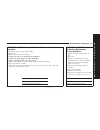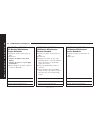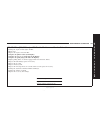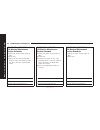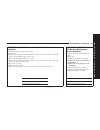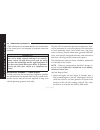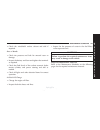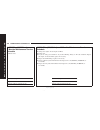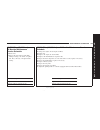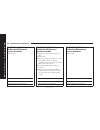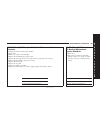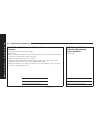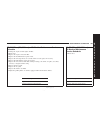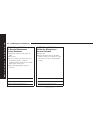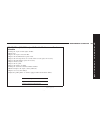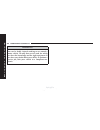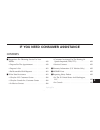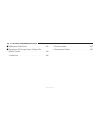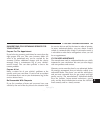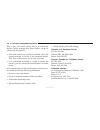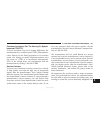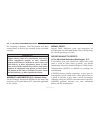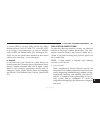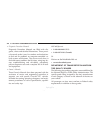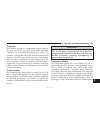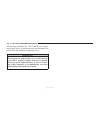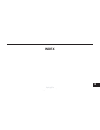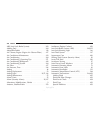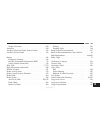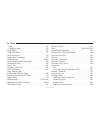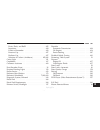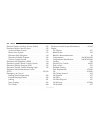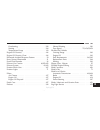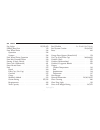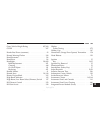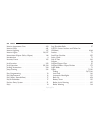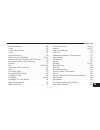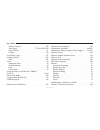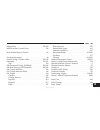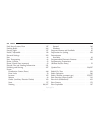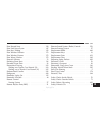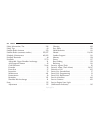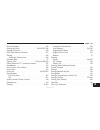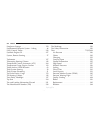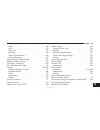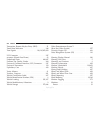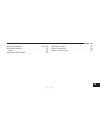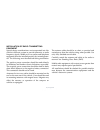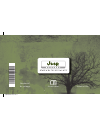- DL manuals
- Jeep
- Scooter
- Grand Cherokee
- Owner's Manual
Jeep Grand Cherokee Owner's Manual
Summary of Grand Cherokee
Page 1
Grand cherokee 2009 owner’s manual 2009 grand cher okee chrysler llc 81-326-0954 second edition printed in u.S.A. 150920 grcherokee.Indd 1 9/9/08 8:33:17 am.
Page 2
Vehicles sold in canada with respect to any vehicles sold in canada, the name chrysler llc shall be deemed to be deleted and the name chrysler canada inc. Used in substitution therefor. Driving and alcohol drunken driving is one of the most frequent causes of accidents. Your driving ability can be s...
Page 3: Table Of Contents
Table of contents section page 1 introduction . . . . . . . . . . . . . . . . . . . . . . . . . . . . . . . . . . . . . . . . . . . . . . . . . . . . . . . . . . . . . 3 2 things to know before starting your vehicle . . . . . . . . . . . . . . . . . . . . . . . . . . . . . . 11 3 understanding the f...
Page 5: Introduction
Introduction contents 䡵 introduction . . . . . . . . . . . . . . . . . . . . . . . . . . . 4 䡵 rollover warning . . . . . . . . . . . . . . . . . . . . . . . 5 䡵 how to use this manual . . . . . . . . . . . . . . . . . . 6 䡵 warnings and cautions . . . . . . . . . . . . . . . . . . . 8 䡵 vehicle ide...
Page 6
Introduction this is a specialized utility vehicle designed for both on-road and off-road use. It can go places and perform tasks for which conventional two-wheel drive enclosed vehicles were not intended. It handles and maneuvers differently from many passenger cars both on-road and off-road, so ta...
Page 7
Note: after you read the manual, it should be stored in the vehicle for convenient reference and remain with the vehicle when sold so that the new owner will be aware of all safety warnings. When it comes to service, remember that your authorized dealer knows your vehicle best, has the factory-train...
Page 8
Failure to use driver and passenger seat belts provided is a major cause of severe or fatal injury. In fact, the u.S. Government notes that the universal use of existing seat belts could cut the highway death toll by 10,000 or more each year and could reduce disabling injuries by two million annuall...
Page 9
Introduction 7 1.
Page 10
Warnings and cautions this owner’s manual contains warnings against op- erating procedures that could result in an accident or bodily injury. It also contains cautions against proce- dures that could result in damage to your vehicle. If you do not read this entire manual, you may miss important info...
Page 11
Vehicle modifications/alterations warning! Any modifications or alterations to this vehicle could seriously affect its roadworthiness and safety and may lead to an accident resulting in serious injury or death. Introduction 9 1.
Page 13: Contents
Things to know before starting your vehicle contents 䡵 a word about your keys . . . . . . . . . . . . . . . . . 14 ▫ wireless ignition node (win) . . . . . . . . . . . . 14 ▫ integrated ignition key . . . . . . . . . . . . . . . . . 15 ▫ ignition key removal . . . . . . . . . . . . . . . . . . 15 ▫ ...
Page 14
▫ express down window feature — if equipped . . . . . . . . . . . . . . . . . . . . . . . . . . . 24 ▫ using the panic alarm . . . . . . . . . . . . . . . . . 25 ▫ programming additional transmitters . . . . . . 25 ▫ transmitter battery service . . . . . . . . . . . . . . 25 ▫ general information . ...
Page 15
▫ seat belts and pregnant women . . . . . . . . . . 45 ▫ seat belt extender . . . . . . . . . . . . . . . . . . . . . 45 ▫ driver and front passenger supplemental restraint systems (srs) . . . . . . . . . . . . . . . . . 46 ▫ child restraints . . . . . . . . . . . . . . . . . . . . . . 58 䡵 engine b...
Page 16
A word about your keys your vehicle uses a keyless ignition system. This system consists of a remote keyless entry (rke) transmitter with integrated ignition key and a wireless ignition node (win) with integral ignition switch. You can insert the double-sided key into the ignition switch with either...
Page 17
Integrated ignition key the integrated ignition key operates the ignition switch. It also contains the remote keyless entry (rke) trans- mitter and a valet key, which stores in the rear of the rke transmitter. The valet key allows for entry into the vehicle should the battery in the vehicle or the r...
Page 18
Note: • if you try to remove the key before you place the shift lever in park, it may become trapped temporarily in the ignition switch. If this occurs, rotate the key to the right slightly, then remove the key as described. If a malfunction occurs, the system will trap the key in the ignition switc...
Page 19
Key-in-ignition reminder if you open the driver’s door with the integrated ignition key in the ignition, a chime will sound to remind you to remove the key. Note: the key-in-ignition reminder only sounds when the integrated ignition key is placed in the lock or acc position. Sentry key 姞 the sentry ...
Page 20
Note: • the sentry key 威 immobilizer system is not compatible with aftermarket remote starting systems. Use of these systems may result in vehicle starting problems and loss of security protection. • exxon/mobil speedpass™, additional rke transmit- ters, or any other transponder-equipped components ...
Page 21
Note: when having the sentry key 威 immobilizer system serviced, bring all vehicle rke transmitters with you to the authorized dealer. Customer key programming if you have two valid rke transmitters with integrated keys, you can program new transmitters to the system by performing the following proce...
Page 22
General information the sentry key 威 system complies with fcc rules part 15 and with rss-210 of industry canada. Operation is subject to the following conditions: • this device may not cause harmful interference. • this device must accept any interference that may be received, including interference...
Page 23
Vehicle security alarm is arming. During this 16 second arming period, opening any door or the liftgate will cancel the arming. If the vehicle security alarm success- fully arms, the vehicle security light will flash at a slower rate to indicate the alarm is set. To disarm the system to disarm the v...
Page 24
Keyless entry (rke) transmitter. The rke transmitter does not need not be pointed at the vehicle to activate the system. Note: inserting the rke transmitter into the ignition switch disables all buttons on that rke transmitter; however, the buttons on the remaining rke transmitters will continue to ...
Page 25
Remote key unlock, driver door/all doors first press this feature lets you program the system to unlock either the driver’s door, or all doors, on the first press of the unlock button on the rke transmitter. To change the current setting, proceed as follows: • for vehicles equipped with the electron...
Page 26
To lock the doors press and release the lock button on the rke transmit- ter to lock all doors. The turn signal lights will flash and the horn will chirp to acknowledge the signal. Sound horn with remote key lock this feature will cause the horn to chirp when the doors are locked with the rke transm...
Page 27
Using the panic alarm to turn the panic alarm feature on or off, press and hold the panic button on the rke transmitter for at least one second and release. When the panic alarm is on, the headlights and park lights will flash, the horn will pulse on and off, and the interior lights will turn on. Th...
Page 28
1. Battery access is through a door located on the rear of the fob. Insert a small, flat blade screwdriver into the slot and gently pry open the access door. 2. Remove and replace the batteries. Avoid touching the new batteries with your fingers. Skin oils may cause battery deterioration. If you tou...
Page 29
If your remote keyless entry (rke) transmitter fails to operate from a normal distance, check for these two conditions. 1. A weak battery in the rke transmitter. The expected life of the battery is a minimum of three years. 2. Closeness to a radio transmitter such as a radio station tower, airport t...
Page 30
Note: • if an engine fault is present the vehicle will start and then shut down 10 seconds later. • the park lamps will turn on and remain on during remote start mode. • for security, power window and power sunroof op- eration (if equipped) are disabled when the vehicle is in the remote start mode. ...
Page 31
Door locks manual door locks use the manual door lock plunger to lock the doors from inside the vehicle. If the plunger is down when the door is closed, the door will lock. Therefore, make sure the key is not inside the vehicle before closing the door. Warning! • for personal security and safety in ...
Page 32
If you press the door lock switch while the keys are in the ignition switch, and the driver’s door is open, the doors will not lock. The rear doors cannot be opened from inside the vehicle until you pull up the lock plungers. Automatic unlock on exit feature — if equipped if auto unlock is enabled, ...
Page 33
Windows power windows the power window controls are located on the driver’s door trim panel. There is a single switch on the front passenger door/rear doors which operates the front passenger/rear passenger door windows. The window controls will operate only when the ignition switch is in the on or ...
Page 34
Auto down both the driver and front passenger window switch has an “auto down” feature. Press the window switch past the first detent, release, and the window will go down automatically. To cancel the “auto down” movement, operate the switch in either the up or down direction and release the switch....
Page 35
Resetting the auto up feature should the auto up feature stop working, the window probably needs to be reset. To reset auto up: pull the window switch up and close the window com- pletely, then pull and hold the switch for one second. Window lockout switch the window lockout switch on the driver’s d...
Page 36
Open or partially open positions. This is a normal occur- rence and can be minimized. If the buffeting occurs with the sunroof open, adjust the sunroof opening to minimize the buffeting. Liftgate to open the liftgate, pull up (squeeze) on the handle and lift. Manually unlocking the vehicle doors wit...
Page 37
Liftgate flipper glass the liftgate flipper glass is also unlocked when the liftgate is unlocked. To open the flipper glass, push up on the window switch located on the liftgate. Warning! To avoid injury, stand back when opening. Glass may automatically rise. Once the liftgate flipper glass has been...
Page 38
Warning! Driving with the flipper glass open can allow poi- sonous exhaust gases into your vehicle. You and your passengers could be injured by these fumes. Keep the flipper glass closed when you are operating the vehicle. Occupant restraints some of the most important safety features in your vehicl...
Page 39
Warning! (continued) • buckle up even though you are an excellent driver, even on short trips. Someone on the road may be a poor driver and cause a collision which includes you. This can happen far away from home or on your own street. • research has shown that seat belts save lives, and they can re...
Page 40
Warning! (continued) • two people should never be belted into a single seat belt. People belted together can crash into one another in an accident, hurting one another badly. Never use a lap/shoulder belt or a lap belt for more than one person, no matter what their size. Lap/shoulder belt operating ...
Page 41
Warning! • a belt that is buckled into the wrong buckle will not protect you properly. The lap portion could ride too high on your body, possibly causing internal injuries. Always buckle your belt into the buckle nearest you. • a belt that is too loose will not protect you as well. In a sudden stop ...
Page 42
Warning! (continued) • a belt that is worn under your arm is very danger- ous. Your body could strike the inside surfaces of the vehicle in a collision, increasing head and neck injury. A belt worn under the arm can cause internal injuries. Ribs aren’t as strong as shoulder bones. Wear the belt over...
Page 43
6. To release the belt, push the red button marked press on the buckle. The belt will automatically retract to its stowed position. If necessary, slide the latch plate down the webbing to allow it to retract fully. Warning! A frayed or torn belt could rip apart in a collision and leave you with no p...
Page 44
As a guide, if you are shorter than average, you will prefer a lower position, and if you are taller than average, you’ll prefer a higher position. When you release the anchorage, try to move it up or down to make sure that it is locked in position. Automatic locking mode — if equipped in this mode,...
Page 45
How to disengage the automatic locking mode disconnect the combination lap/shoulder belt and allow it to retract completely to disengage the automatic locking mode and activate the vehicle sensitive (emer- gency) locking mode. Energy management feature this vehicle has a safety belt system with an e...
Page 46
Note: these devices are not a substitute for proper seat belt placement by the occupant. The seat belt must still be worn snugly and positioned properly. The pretensioners are triggered by the occupant re- straint control (orc). Like the front airbags, the preten- sioners are a single use item. Afte...
Page 47
3. Within 60 seconds of starting the vehicle, unbuckle and then re-buckle the driver’s seat belt at least three times within 10 seconds, ending with the seat belt buckled. 4. Turn the ignition key to the off position. A single chime will sound to signify that you have successfully completed the prog...
Page 48
Warning! Using a seat belt extender when not needed can increase the risk of injury in a collision. Only use when the lap belt is not long enough when it is worn low and snug, and in the recommended seating positions. Remove and store the extender when not needed. Driver and front passenger suppleme...
Page 49
The front airbags have a multistage inflator design. This may allow the airbags to have different rates of inflation that are based on collision severity and occupant size. This vehicle is equipped with window bags to protect the driver, and front and rear passengers sitting next to a window. They a...
Page 50
Warning! • do not put anything on or around the front airbag covers or attempt to manually open them. You may damage the airbags and you could be injured because the airbags are no longer functional. These protective covers for the airbag cushions are designed to open only when the airbags are infla...
Page 51
Front airbags work with the instrument panel knee bol- sters to provide improved protection for the driver and front passenger. Window bags also work with seat belts to improve occupant protection. The seat belts are designed to protect you in many types of collisions. The front airbags deploy in mo...
Page 52
You should read the instructions provided with your child restraint to make sure that you are using it properly. 2. All occupants should use their lap and shoulder belts properly. 3. The driver and front passenger seats should be moved back as far as practical to allow the front airbags room to infl...
Page 53
Airbag system components the airbag system consists of the following: • occupant restraint control (orc) • airbag warning light • driver airbag • passenger airbag • side curtain airbags above side windows • side remote acceleration sensors • driver side seat track position sensor • steering wheel an...
Page 54
• the orc also turns on the airbag warning light for 2.5 to 8 seconds for a self-check when the ignition is first turned on. After the self-check, the airbag warning light will turn off. If the orc detects a malfunction in any part of the system, it turns on the airbag warning light either momentari...
Page 55
• the side impact srs side curtain airbags are de- signed to activate only in certain side or rollover collisions. When the occupant restraint control (orc) detects a collision requiring the window bags to inflate, it signals the inflators on the crash side of the vehicle, and both sides of the vehi...
Page 56
Abrasions are similar to friction rope burns or those you might get sliding along a carpet or gymnasium floor. They are not caused by contact with chemicals. They are not permanent and normally heal quickly. However, if you haven’t healed significantly within a few days, or if you have any blisterin...
Page 57
Note: the interior lights can only be deactivated if the key is removed from the ignition switch or the vehicle is driven. Maintaining your airbag system warning! • modifications to any part of the airbag system could cause it to fail when you need it. You could be injured if the airbag system is no...
Page 58
Airbag warning light you will want to have the airbag system ready to inflate for your protection in an impact. The airbag system is designed to be maintenance free. If any of the following occurs, have an authorized dealer service the system promptly: • airbag warning light does not come on during ...
Page 59
• under certain circumstances, edr data may not be recorded (e.G., loss of battery power). In conjunction with other data gathered during a com- plete accident investigation, the electronic data may be used by chrysler llc and others to learn more about the possible causes of crashes and associated ...
Page 60
4. Otherwise required by law. Data parameters that may be recorded: • diagnostic trouble code(s) and warning lamp status for electronically-controlled safety systems, including the airbag system • airbag disable lamp status (if equipped) • ⬙ time ⬙ of airbag deployment (in terms of ignition cycles a...
Page 61
Enough for an adult safety belt. Always check the child seat owner’s manual to ensure you have the right seat for your child. Use the restraint that is correct for your child. Warning! In a collision, an unrestrained child, even a tiny baby, can become a missile inside the vehicle. The force require...
Page 62
Warning! • rearward-facing child seats must never be used in the front seat of a vehicle with the front passen- ger airbag unless the airbag is turned off. An airbag deployment could cause severe injury or death to infants in this position. • improper installation can lead to failure of an infant or...
Page 63
Designed to keep the lap portion tight around the child restraint so that it is not necessary to use a locking clip. If the seat belt has a cinching latch plate, pulling up on the shoulder portion of the lap/shoulder belt will tighten the belt (the cinching latch plate will keep the belt tight, howe...
Page 64
Note: for additional information refer to www.Seatcheck.Org or call 1-866-seatcheck. Older children and child restraints children who weigh more than 20 lbs (9 kg), and who are older than one year, can ride forward-facing in the vehicle. Forward-facing child seats and convertible child seats used in...
Page 65
Latch — child seat anchorage system (lower anchors and tether for children) your vehicle’s rear seat is equipped with the child restraint anchorage system called latch. The latch system provides for the installation of the child restraint without using the vehicle’s seat belts, instead securing the ...
Page 66
If you are installing latch-compatible child restraints in adjacent rear seating positions, you can use the latch anchors or the vehicle’s seat belt for the outboard position, but you must use the vehicle’s seat belt at the center position. If your child restraints are not latch- compatible, you can...
Page 67
In addition, there are tether strap anchorages behind each rear seating position located on the back of the seat. Many, but not all restraint systems will be equipped with separate straps on each side, with each having a hook or connector for attachment to the lower anchorage and a means of adjustin...
Page 68
Warning! Improper installation of a child restraint to the latch anchorages can lead to failure of an infant or child restraint. The child could be badly injured or killed. Follow the manufacturer’s directions exactly when installing an infant or child restraint. Installing child restraints using th...
Page 69
The buckle, turn the buckle around, and insert the latch plate into the buckle again. If you still can’t make the child restraint secure, try a different seating position. To attach a child restraint tether strap: route the tether strap over the seatback and attach the hook to the tether anchor loca...
Page 70
Warning! An incorrectly anchored tether strap could lead to increased head motion and possible injury to the child. Use only the anchor positions directly behind the child seat to secure a child restraint top tether strap. Transporting pets airbags deploying in the front seat could harm your pet. An...
Page 71
A new engine may consume some oil during its first few thousand miles (kilometers) of operation. This should be considered as a normal part of the break-in and not interpreted as an indication of difficulty. Safety tips transporting passengers never transport passengers in the cargo area. Warning! •...
Page 72
Do not run the engine in a closed garage or in confined areas any longer than needed to move your vehicle in or out of the area. If it is necessary to sit in a parked vehicle with the engine running, adjust your heating or cooling controls to force outside air into the vehicle. Set the blower at hig...
Page 73
Airbag warning light the light should come on and remain on for six to eight seconds as a bulb check when the ignition switch is first turned on. If the light is not lit during starting, see your authorized dealer. If the light stays on, flickers, or comes on while driving, have the system checked b...
Page 75: Contents
Understanding the features of your vehicle contents 䡵 mirrors . . . . . . . . . . . . . . . . . . . . . . . . . . . . . . 78 ▫ inside day/night mirror . . . . . . . . . . . . . . . . 78 ▫ automatic dimming mirror — if equipped . . . 78 ▫ outside mirrors . . . . . . . . . . . . . . . . . . . . . . 79...
Page 76
▫ general information . . . . . . . . . . . . . . . . . . 110 䡵 voice recognition system (vr) — if equipped . . . . . . . . . . . . . . . . . . . . . . . . . . 110 ▫ voice recognition system (vr) operation . . . 110 ▫ commands . . . . . . . . . . . . . . . . . . . . . . . . 112 ▫ voice training . . ...
Page 77
▫ headlights and parking lights . . . . . . . . . . 130 ▫ automatic headlight system — if equipped . . . . . . . . . . . . . . . . . . . . . . . . 131 ▫ smartbeams — if equipped . . . . . . . . . . . . . 132 ▫ daytime running lights — if equipped . . . . 133 ▫ automatic headlight leveling — hid head...
Page 78
▫ to resume speed . . . . . . . . . . . . . . . . . . . . 146 ▫ to vary the speed setting . . . . . . . . . . . . . . 146 ▫ to accelerate for passing . . . . . . . . . . . . . . 147 䡵 rear park assist — if equipped . . . . . . . . . . . 147 ▫ rear park assist sensors . . . . . . . . . . . . . . . 14...
Page 79
▫ opening sunroof — express . . . . . . . . . . . . 161 ▫ closing sunroof — express . . . . . . . . . . . . . 161 ▫ pinch protect feature . . . . . . . . . . . . . . . . . 161 ▫ pinch protect override . . . . . . . . . . . . . . . . 162 ▫ venting sunroof — express . . . . . . . . . . . . . 162 ▫ sun...
Page 80
Mirrors inside day/night mirror a two-point pivot system allows for horizontal and vertical adjustment of the mirror. The mirror should be adjusted to center on the view through the rear window. Headlight glare from vehicles behind you can be reduced by moving the small control under the mirror to t...
Page 81
Caution! To avoid damage to the mirror during cleaning, never spray any cleaning solution directly onto the mirror. Apply the solution onto a clean cloth and wipe the mirror clean. Outside mirrors to receive maximum benefit, adjust the outside mirrors to center on the adjacent lane of traffic with a...
Page 82
Outside mirrors folding feature all outside mirrors are hinged and may be moved either forward or rearward to resist damage. The hinges have three detent positions: full forward, full rearward and normal. Driver’s and front passenger outside automatic dimming mirrors — if equipped if your vehicle is...
Page 83
Power mirror preselected positions can be controlled by the optional memory seat feature. Refer to “driver memory seat” in this section for further information. Heated mirrors — if equipped these mirrors are heated to melt frost or ice. This feature is activated whenever you turn on the rear window ...
Page 84
Uconnect 姞 phone — if equipped note: the sales code rer and reu radios contain an integrated uconnect 威 phone. Refer to your “navigation user’s manual” for uconnect 威 phone operating instruc- tions for these radios. Radio sales code can be located on the lower right corner of the radio faceplate. Uc...
Page 85
The uconnect 威 phone is driven through your bluetooth 威 “hands-free profile” cellular phone. Uconnect 威 features bluetooth 威 technology - the global standard that enables different electronic devices to connect to each other without wires or a docking station, so uconnect 威 phone works no matter whe...
Page 86
Can be adjusted either from the radio volume control knob or from the steering wheel radio control (right switch), if so equipped. The radio display will be used for visual prompts from the uconnect 威 phone such as ⬙ cell ⬙ or caller id on certain radios. Operation voice commands can be used to oper...
Page 87
Help command if you need assistance at any prompt, or if you want to know your options at any prompt, say ⬙ help ⬙ following the beep. The uconnect 威 phone will play all the options at any prompt if you ask for help. To activate the uconnect 威 phone from idle, simply press the phone button and follo...
Page 88
• for identification purposes, you will be prompted to give the uconnect 威 phone a name for your cellular phone. Each cellular phone that is paired should be given a unique phone name. • you will then be asked to give your cellular phone a priority level between one and seven, with one being the hig...
Page 89
• the system will prompt you to say the name of the person you want to call. • after the ⬙ ready ⬙ prompt and the following beep, say the name of the person you want to call. For example, you can say ⬙ john doe, ⬙ where john doe is a previ- ously stored name entry in the uconnect 威 phonebook or down...
Page 90
The uconnect 威 phone will allow you to enter up to 32 names in the phonebook with each name having up to four associated phone numbers and designations. Each language has a separate 32-name phonebook accessible only in that language. In addition, if equipped and supported by your phone, uconnect 威 p...
Page 91
• this downloaded phonebook cannot be edited or deleted on the uconnect 威 phone. These can only be edited on the cellular phone. The changes are trans- ferred and updated to uconnect 威 phone on the next phone connection. Phonebook download — single entry if equipped and supported by your phone, ucon...
Page 92
Edit uconnect 威 phonebook entries note: • editing names in the phonebook is recommended when the vehicle is not in motion. • automatic downloaded phonebook entries cannot be deleted or edited. • press the phone button to begin. • after the ⬙ ready ⬙ prompt and the following beep, say ⬙ phonebook edi...
Page 93
• after you enter the phonebook delete menu, you will then be asked for the name of the entry that you wish to delete. You can either say the name of a phonebook entry that you wish to delete or you can say ⬙ list names ⬙ to hear a list of the entries in the phonebook from which you choose. To selec...
Page 94
• after the ⬙ ready ⬙ prompt and the following beep, say ⬙ phonebook list names. ⬙ • the uconnect 威 phone will play the names of all the phonebook entries, including the downloaded phone- book entries, if available. • to call one of the names in the list, press the voice recognition button during th...
Page 95
Cellular phone. Press the phone button to place the current call on hold and answer the incoming call. Note: the uconnect 威 phone compatible phones in the market today do not support rejecting an incoming call when another call is in progress. Therefore, the user can only answer an incoming call or ...
Page 96
Three-way calling to initiate three-way calling, press the voice recog- nition button while a call is in progress, and make a second phone call, as described under ⬙ making a second call while current call is in progress. ⬙ after the second call has established, press and hold the phone button until...
Page 97
• after the ignition key is switched to off, a call can continue on the uconnect 威 phone for a certain dura- tion, after which the call is automatically transferred from the uconnect 威 phone to the cellular phone. • an active call is automatically transferred to the cellular phone after the ignition...
Page 98
If the phone is not reachable and the uconnect 威 phone is operational, you may reach the emergency number as follows: • press the phone button to begin. • after the ⬙ ready ⬙ prompt and the following beep, say ⬙ emergency ⬙ and the uconnect 威 phone will instruct the paired cellular phone to call the...
Page 99
Towing assistance if you need towing assistance: • press the phone button to begin. • after the ⬙ ready ⬙ prompt and the following beep, say ⬙ towing assistance. ⬙ note: • the towing assistance number dialed is based on the country where the vehicle is purchased (1-800-528- 2069 for the u.S., 1-877-...
Page 100
When calling a number with your uconnect 威 phone that normally requires you to enter in a touch-tone sequence on your cellular phone keypad, you can press the voice recognition button and say the sequence you wish to enter, followed by the word ⬙ send. ⬙ for example, if required to enter your pin fo...
Page 101
Turning confirmation prompts on/off turning confirmation prompts off will stop the system from confirming your choices (e.G., the uconnect 威 phone will not repeat a phone number before you dial it). • press the phone button to begin. • after the ⬙ ready ⬙ prompt and the following beep, say ⬙ setup c...
Page 102
Mute/un-mute (mute off) when you mute the uconnect 威 phone, you will still be able to hear the conversation coming from the other party, but the other party will not be able to hear you. In order to mute the uconnect 威 phone: • press the voice recognition button. • following the beep, say ⬙ mute. ⬙ ...
Page 103
• the uconnect 威 phone will play the phone names of all paired cellular phones in order from the highest to the lowest priority. To “select” or “delete” a paired phone being announced, press the voice recognition button and say “select” or “delete.” also, see the next two sections for an alternate w...
Page 104
Things you should know about your uconnect 姞 phone uconnect 威 phone tutorial to hear a brief tutorial of the system features, press the phone button and say “uconnect 威 tutorial.” voice training for users experiencing difficulty with the system recog- nizing their voice commands or numbers, the ucon...
Page 105
• speak normally, without pausing, just as you would speak to a person sitting a few feet/meters away from you. • make sure that no one other than you is speaking during a voice recognition period. • performance is maximized under: • low-to-medium blower setting, • low-to-medium vehicle speed, • low...
Page 106
• in a convertible vehicle, system performance may be compromised with the convertible top down. Far end audio performance • audio quality is maximized under: • low-to-medium blower setting, • low-to-medium vehicle speed, • low road noise, • smooth road surface, • fully closed windows, • dry weather...
Page 107
Understanding the features of your vehicle 105 3.
Page 108
106 understanding the features of your vehicle.
Page 109
Understanding the features of your vehicle 107 3.
Page 110
Voice commands primary alternate(s) zero one two three four five six seven eight nine star (*) plus (+) pound (#) add location all voice commands primary alternate(s) call cancel confirmation prompts continue delete dial download edit emergency english erase all espanol francais help home 108 unders...
Page 111
Voice commands primary alternate(s) language list names list phones mobile mute mute off new entry no pager pair a phone phone pairing pairing phonebook phone book previous record again redial voice commands primary alternate(s) return to main menu return or main menu select phone select send set up...
Page 112
General information this device complies with part 15 of the fcc rules and rss 210 of industry canada. Operation is subject to the following conditions: • changes or modifications not expressly approved by the party responsible for compliance could void the user’s authority to operate the equipment....
Page 113
When you press the vr button, you will hear a beep. The beep is your signal to give a command. Note: if you do not say a command within a few seconds, the system will present you with a list of options. If you ever wish to interrupt the system while it lists options, press the vr button, listen for ...
Page 114
Commands the voice recognition system understands two types of commands. Universal commands are available at all times. Local commands are available if the supported radio mode is active. Changing the volume 1. Start a dialogue by pressing the vr button. 2. Say a command (e.G., “help”). 3. Use the o...
Page 115
Radio fm to switch to the fm band say “fm” or “radio fm”. In this mode, you may say the following commands: • “frequency” (to change the frequency) • “next station” (to select the next station) • “previous station” (to select the previous station) • “radio menu” (to switch to the radio menu) • “main...
Page 116
Memo to switch to the voice recorder mode say “memo”. In this mode, you may say the following commands: • “new memo” (to record a new memo) — during the recording you may press the vr button to stop record- ing. You proceed by saying one of the following commands: − “save” (to save the memo) − “cont...
Page 117
Note: keep in mind that you have to press the vr button first and wait for the beep before speaking the “barge in” commands. Voice training for users experiencing difficulty with the system recog- nizing their voice commands or numbers, uconnect 威 phone voice training feature may be used. 1. Press t...
Page 118
Front seat adjustment — recline to adjust the seatback, lift the lever located on the outboard side of the seat, lean back, and release the lever at the desired position. To return the seatback, lift the lever, lean forward, and release the lever. Warning! • do not ride with the seatback reclined so...
Page 119
Eight-way driver’s power seat the driver’s power seat switches are located on the outboard side of the driver’s seat lower side trim. The bottom switch controls up/down, forward/rearward, and tilt adjustment. The top switch controls the seatback recline adjustment. Four-way passenger’s power seat — ...
Page 120
Note: the four-way seat does not have an up/down adjustment. Head restraints head restraints can reduce the risk of whiplash injury in the event of impact from the rear. Adjustable head restraints should be adjusted so that the upper edge is as high as practical. The head restraints have a locking b...
Page 121
After turning the ignition on, you can choose from a high or low heat setting. Illuminated leds on each switch indicate the level of heat in use. Press the switch once to select high-level heat- ing. Press the switch a second time to select low-level heating. Press the switch a third time to shut th...
Page 122
Warning! (continued) • do not place anything on the seat that insulates against heat, such as a blanket or cushion. This may cause the seat heater to overheat. To avoid heated seat surfaces coming in contact with each other and potential seat overheating, always ensure that the seat heater is in the...
Page 123
When the high-level setting is selected, the heater will provide a boosted heat level during the first four minutes of operation. Then, the heat output will drop to the normal high-level. If the high-level setting is selected, the system will automatically switch to low-level after approximately 30 ...
Page 124
60/40 split rear seat to lower rear seat either side of the rear seat can be lowered to allow for extended cargo space and still maintain some rear seating room. Note: be sure that the front seats are fully upright and positioned forward. This will allow the rear seatback to fold down easily. 1. Pul...
Page 125
To raise rear seat raise the rear seatback and lock it into place. If interfer- ence from the cargo area prevents the seatback from fully locking, you will have difficulty returning the seat to its proper position. Warning! The cargo area in the rear of the vehicle (with the rear seatbacks in the lo...
Page 126
Storage (rear seat armrest) — if equipped the rear seat may be equipped with a center storage armrest. Press the latch and lift the top of the armrest to access the storage bin. Driver memory seat — if equipped once programmed, the memory buttons 1 and 2 on the driver’s door panel can be used to rec...
Page 127
Keyless entry (rke) transmitters can also be pro- grammed to recall the same positions when the un- lock button is pressed. Your vehicle is equipped with two rke transmitters. One or both rke transmitters can be linked to either memory position. The memory system can accommodate up to four rke trans...
Page 128
4. Adjust the brake and accelerator pedals to the desired positions. 5. Turn on the radio and set the radio station presets (up to 12 am and 12 fm stations can be set). 6. Turn the ignition switch to the lock position and remove the key. 7. Press and release the s (set) button located on the driver’...
Page 129
To recall the memory setting for driver two, press memory button number 2 on the driver’s door, or the unlock button on the rke transmitter linked to memory position 2. A recall can be cancelled by pressing any of the memory buttons on the drivers door during a recall (s, 1, or 2). When a recall is ...
Page 130
Easy entry/exit seat this feature provides automatic driver’s seat positioning which will enhance driver mobility out of and into the vehicle. There are two possible easy entry/exit adjustments available: • the seat cushion will move rearward approximately 2.5 in (60 mm), if the starting position of...
Page 131
To open and close the hood to open the hood, two latches must be released. 1. Pull the release lever located below the instrument panel and in front of the driver’s door. 2. Reach under the hood, move safety latch to the left, and lift the hood. Caution! To prevent possible damage, do not slam the h...
Page 132
Warning! If the hood is not fully latched, it could fly up when the vehicle is moving and block your forward vision. Be sure all hood latches are fully latched before driving. Lights multifunction lever the multifunction lever controls the operation of the headlights, turn signals, headlight beam se...
Page 133
Automatic headlight system — if equipped turn the end of the multifunction lever to the third detent to activate the automatic headlight system. This system performs two functions. With the engine running and the multifunction lever in the auto posi- tion, the headlights will turn on and off based o...
Page 134
Smartbeams — if equipped the smartbeam system provides increased forward light- ing at night by automating high beam control through the use of a digital camera mounted on the inside rearview mirror. This camera detects vehicle specific light and automatically switches from high beams to low beams u...
Page 135
To deactivate 1. Pull back on the multifunction lever to manually deactivate the system (normal operation of low beams). 2. Push back on the multifunction lever once again to reactivate the system. Note: broken, muddy, or obstructed headlights and taillights of vehicles in the field of view will cau...
Page 136
Instrument panel and interior lights when the multifunction lever is in the parking light, headlight, or auto position (if equipped), rotating the center portion of the lever up and down will increase and decrease the brightness (dimmer control) of the instru- ment panel lights. Full daytime brightn...
Page 137
Battery saver feature if the multifunction lever is left in the interior light position, parking light position, or the headlight position when the ignition switch is moved to the lock position, the battery saver feature will automatically turn off the exterior and interior lights after eight minute...
Page 138
Note: • turning on the high beam headlights turns off the fog lights. • a front fog light is a lighting device that provides illumination in front of the vehicle under conditions of fog, rain, snow, or dust. The front fog lights supple- ment the lower beam of a standard headlight system. • proper ai...
Page 139
High beam switch push the multifunction lever away from you to switch the headlights to high beam. Pull the multifunction lever towards you to switch the headlights back to low beam. Flash-to-pass you can signal another vehicle by lightly pulling the multifunction lever toward the steering wheel. Th...
Page 140
Contains both driver and passenger reading lights), read- ing lights (located above the rear doors), and a rear cargo light. Opening a door, pressing the unlock button on the remote keyless entry (rke) transmitter or turning the center of the multifunction control lever to the extreme up position, w...
Page 141
Windshield wipers and washers the front and rear wipers and washers are operated by a switch in the right side control lever. Turn the end of the control lever to select low, high, or one of the five speed sensitive intermittent windshield wiper speeds. Refer to “speed sensitive intermittent wiper s...
Page 142
To use the washer, pull the lever toward you and hold while spray is desired. If the lever is pulled while in the delay range, the wiper will operate for several seconds after the lever is released, and then resume the intermit- tent interval previously selected. If the lever is pulled while in the ...
Page 143
Rain sensing wipers — if equipped this feature senses moisture on the windshield and automatically activates the wipers for the driver. The feature is especially useful for road splash or overspray from the windshield washers of the vehicle ahead. Rotate the end of the multifunction lever to one of ...
Page 144
Operate until the wiper switch is moved, vehicle speed is greater than 0 mph (0 km/h), or the outside tem- perature is greater than 32°f (0°c). • transmission in neutral position — when the ignition is on, and the transmission is in the neu- tral position, the rain sensing system will not oper- ate ...
Page 145
The steering wheel outward or push it inward as desired. To lock the steering column in position, push the control handle upward until fully engaged. Warning! Do not adjust the steering wheel while driving. The telescoping adjustment must be locked while driv- ing. Adjusting the steering wheel while...
Page 146
Press the top of the switch to move the pedals rearward (toward the driver). • the pedals can be adjusted with the ignition off. • the pedals can be adjusted while driving. • the pedals cannot be adjusted when the vehicle is in reverse (r) or when the electronic speed control is on. A message will b...
Page 147
To activate push the on/off button. The cruise indicator light in the instrument cluster will illuminate. To turn the system off, push the on/off button a second time. The cruise indicator light will turn off. The system should be turned off when not in use. Warning! Leaving the electronic speed con...
Page 148
Speed control without erasing the set speed memory. Pressing the on/off button or turning the ignition switch off erases the set speed memory. To resume speed to resume a previously set speed, push the resume accel lever up and release. Resume can be used at any speed above 20 mph (32 km/h) for 3.7l...
Page 149
To accelerate for passing press the accelerator as you would normally. When the pedal is released, the vehicle will return to the set speed. Using electronic speed control on hills the transmission may downshift on hills to maintain the vehicle set speed. Note: the electronic speed control system ma...
Page 150
The sensors can detect obstacles from approximately 12 to 59 in (30 to 150 cm) from the rear fascia in the horizontal direction, depending on the location and orientation of the obstacle and the type of obstacle. Rear park assist warning display the rear park assist warning display, located in the h...
Page 151
The system dimly illuminates the two outer most yellow leds when it is on and detecting no obstacles. The following chart shows the warning display operation when the system is detecting an obstacle: warning display distances display led obstacle distance from: led color audible signal rear corners ...
Page 152
Enable/disable the rear park assist the rear park assist can be enabled and disabled with a switch located on the upper switch bank of the instru- ment panel. When the switch is pressed to disable the system, the instrument cluster will display the “park assist dis- abled” message. Refer to “electro...
Page 153
Cleaning the rear park assist clean the rear park assist sensors with water, car wash soap and a soft cloth. Do not use rough or hard cloths. Do not scratch or poke the sensors. Otherwise, you could damage the sensors. Rear camera — if equipped vehicles with a uconnect 威 tunes radio may be equipped ...
Page 154
Caution! (continued) • to avoid vehicle damage, the vehicle must be driven slowly when using the rear camera system to be able to stop in time when an obstacle is seen. It is recommended that the driver look frequently over his/her shoulder when using the rear camera system. Note: if snow, ice, mud,...
Page 155
4. When the vehicle is shifted into reverse, an image of the rear of the vehicle will appear with a caution note to ⬙ check entire surroundings ⬙ displayed across the top of the screen. After five seconds this note will disappear. 5. When the vehicle is shifted out of reverse, the rear camera mode i...
Page 156
The lights also turn on when a front door or rear door is opened. The lights will also turn on when the unlock button on the remote keyless entry transmitter is pressed. Sunglasses storage at the rear of the console a compartment is provided for the storage of a pair of sunglasses. The storage compa...
Page 157
Warning! • your motorized door or gate will open and close while you are training the universal transceiver. Do not train the transceiver if people or pets are in the path of the door or gate. Only use this trans- ceiver with a garage door opener that has a “stop and reverse” feature as required by ...
Page 158
2. Place the hand-held transmitter 1 to 3 in (3 to 8 cm) from the homelink 威 buttons while keeping the evic display in view. For optimal training, point the battery end of the hand- held transmitter away from the homelink 威 . 3. Simultaneously, press and hold both the chosen homelink 威 button and th...
Page 159
This can usually be found where the hanging antenna wire is attached to the garage door opener motor (it is not the button normally used to open and close the door). 6. Firmly press and release the “learn” or “training” button. The name and color of the button may vary by manufacturer. Note: there a...
Page 160
Gate operator/canadian programming canadian radio-frequency laws require transmitter sig- nals to “time-out” (or quit) after several seconds of transmission – which may not be long enough for homelink 威 to pick up the signal during programming. Similar to this canadian law, some u.S. Gate operators ...
Page 161
Reprogramming a single homelink 姞 button to reprogram a channel that has been previously trained, follow these steps: 1. Turn the ignition switch to the on/run position. 2. Press and hold the desired homelink 威 button for 20 seconds until the evic display states “channel # training.” do not release ...
Page 162
General information this device complies with fcc rules part 15 and industry canada rss-210. Operation is subject to the following two conditions: 1. This device may not cause harmful interference 2. This device must accept any interference that may be received including interference that may cause ...
Page 163
Warning! • never leave children in a vehicle, with the key in the ignition switch. Occupants, particularly unat- tended children, can become entrapped by the power sunroof while operating the power sunroof switch. Such entrapment may result in serious injury or death. • in an accident, there is a gr...
Page 164
Pinch protect override if a known obstruction (ice, debris, etc.) prevents closing the sunroof, press the switch forward and hold for two seconds after the reversal occurs. This allows the sunroof to move towards the closed position. Note: pinch protection is disabled while the switch is pressed. Ve...
Page 165
Ignition off operation the power sunroof switches remain active for up to 10 minutes after the ignition switch has been turned off. Opening either front door will cancel this feature. Sunroof fully closed press the switch forward and release to ensure that the sunroof is fully closed. Power outlets ...
Page 166
Warning! To avoid serious injury or death: • do not use a three-prong adapter. • do not insert any objects into the receptacles. • do not touch with wet hands. • close the lid when not in use and while driving the vehicle. • if this outlet is mishandled, it may cause an electric shock and failure. C...
Page 167
Power inverter — if equipped there is a 115-volt, 150-watt inverter outlet located on the back of the center console to convert dc current to ac current. This outlet can power cellular phones, electronics and other low power devices requiring power up to 150 watts. Certain high-end video games, such...
Page 168
Press the power inverter switch (located on the upper switch bank) to turn the power on to the outlet. Press the switch again to turn the power off. Note: • when the power inverter switch is pressed, there will be a delay of approximately one second before the inverter status indicator turns on. The...
Page 169
Cupholders in the center console, there are two cupholders for the front seat passengers. The rear passengers have access to two cupholders that pull out from the lower center of the rear seat. Cargo area features cargo light the cargo area light is activated by opening the liftgate, opening any doo...
Page 170
The cargo light lens surface will turn off all interior lamps. Push on the lens surface a second time to restore the interior lights to normal operation. Rear storage compartment the rear storage compartment is located on the driver’s side behind the second row seat. Retractable cargo area cover — i...
Page 171
Warning! In an accident, a loose cargo cover in the vehicle could cause injury. It could fly around in a sudden stop and strike someone in the vehicle. Do not store the cargo cover on the cargo floor or in the passenger compartment. Remove the cover from the vehicle when taken from its mounting. Do ...
Page 172
Cargo tie-down hooks the tie-downs located on the cargo area floor should be used to safely secure loads when the vehicle is moving. Warning! • to help protect against personal injury, passengers should not be seated in the rear cargo area. The rear cargo space is intended for load carrying purposes...
Page 173
Warning! (continued) • do not carry loads which exceed the load limits described on the label attached to the left door or left door center pillar. • always place cargo evenly on the cargo floor. Put heavier objects as low and as far forward as possible. • place as much cargo as possible in front of...
Page 174
The cargo load floor is held by spring loaded latches. In order to use the cargo load floor, use the following procedure: note: the cargo load floor latches should not be used as cargo tie-downs. 1. Flip up pull loop(s) so they are perpendicular (straight up) to the top surface of the tray. 2. Pull ...
Page 175
If the rear wiper is operating when the ignition is turned off, the wiper will automatically return to the “park” position if power accessory delay is active. Power acces- sory delay can be cancelled by opening the door; if this happens, the rear wiper will stop at its current position and will not ...
Page 176
Caution! • to avoid damaging the electrical conductors of the rear window defroster, do not use scrapers, sharp instruments, or abrasive window cleaners on the interior surface of the window. • labels can be peeled off after soaking with warm water. Roof luggage rack — if equipped the crossbars and ...
Page 177
Note: • to help control wind noise when the crossbars are not in use, place the front crossbar in the second detent from the front of the vehicle and the rear crossbar in the last detent closest to the rear of the vehicle. • if the rear crossbar (or any metallic object) is placed over the satellite ...
Page 178
Caution! (continued) • travel at reduced speeds and turn corners care- fully when carrying large or heavy loads on the roof rack. Wind forces, due to natural causes or nearby truck traffic, can add sudden upward lift to a load. This is especially true on large flat loads and may result in damage to ...
Page 179: Contents
Understanding your instrument panel contents 䡵 instrument panel features . . . . . . . . . . . . . . . 181 䡵 instrument cluster – gasoline engine . . . . . . . 182 䡵 instrument cluster – diesel engine . . . . . . . . . 183 䡵 instrument cluster description . . . . . . . . . . . . 184 䡵 electronic veh...
Page 180
▫ notes on playing mp3/wma files . . . . . . . 218 ▫ list button (disc mode for mp3/wma play) . . . . . . . . . 220 ▫ info button (disc mode for mp3/wma play) . . . . . . . . . . . . . . . . . . . . . . . . . . . . . 221 䡵 am/fm/cd/dvd radio (rer/ren) – if equipped . . . . . . . . . . . . . . . . . ...
Page 181
䡵 universal consumer interface (uci) — if equipped . . . . . . . . . . . . . . . . . . . . . . . . . . . . 247 ▫ connecting the ipod 威 . . . . . . . . . . . . . . . . . 248 ▫ using this feature . . . . . . . . . . . . . . . . . . . 248 ▫ controlling the ipod 威 using radio buttons . . . . . . . . . ....
Page 182
▫ cd player . . . . . . . . . . . . . . . . . . . . . . . . . 259 䡵 cd/dvd maintenance . . . . . . . . . . . . . . . . . 260 䡵 radio operation and cellular phones . . . . . . . 260 䡵 climate controls . . . . . . . . . . . . . . . . . . . . . . 261 ▫ manual air conditioning and heating system — if eq...
Page 183
Instrument panel features 1 - air outlet 5 - upper switch bank 9 - lower switch bank 2 - instrument cluster 6 - power outlet/cigar lighter 10 - climate controls 3 - radio 7 - storage bin 11 - ignition switch 4 - glove compartment 8 - power outlet 12 - storage bin understanding your instrument panel ...
Page 184
Instrument cluster – gasoline engine 182 understanding your instrument panel.
Page 185
Instrument cluster – diesel engine understanding your instrument panel 183 4.
Page 186
Instrument cluster description 1. Speedometer indicates vehicle speed. 2. Brake warning light this light monitors various brake functions, including brake fluid level and parking brake application. If the brake light turns on, it may indicate that the parking brake is applied, that the brake fluid l...
Page 187
Warning! Driving a vehicle with the red brake light on is dangerous. Part of the brake system may have failed. It will take longer to stop the vehicle. You could have an accident. Have the vehicle checked immediately. Vehicles equipped with the anti-lock brake system (abs), are also equipped with el...
Page 188
The on position before engine start. If the bulb does not come on when turning the key from off to on, have the condition checked promptly. Certain conditions such as a loose or missing gas cap, poor fuel quality, etc. May illuminate the light after engine start. The vehicle should be serviced if th...
Page 189
8. Tachometer indicates the engine speed in revolutions per minute (rpm). 9. Vehicle security light this light will flash rapidly for approximately 15 seconds when the vehicle theft alarm is arming. The light will flash at a slower speed continuously after the alarm is set. The security light will a...
Page 190
Vehicle placard or tire inflation pressure label, you should determine the proper tire inflation pressure for those tires.) as an added safety feature, your vehicle has been equipped with a tire pressure monitoring system (tpms) that illuminates a low tire pressure telltale when one or more of your ...
Page 191
Tires or wheels on your vehicle, to ensure that the replacement or alternate tires and wheels allow the tpms to continue to function properly. Caution! The tpms has been optimized for the original equipment tires and wheels. Tpms pressures and warning have been established for the tire size equipped...
Page 192
Warning! A hot engine cooling system is dangerous. You or others could be badly burned by steam or boiling coolant. You may want to call an authorized dealer- ship for service if your vehicle overheats. If you decide to look under the hood yourself, see section 7 of this manual. Follow the warnings ...
Page 193
17. 4wd low indicator — if equipped this light alerts the driver that the vehicle is in the 4wd low mode. The front and rear drive- shafts are mechanically locked together forcing the front and rear wheels to rotate at the same speed. 18. Seat belt reminder light when the ignition switch is first tu...
Page 194
Note: you must apply the brakes before shifting from park. 22. Fuel gauge the pointer shows the level of fuel in the fuel tank when the ignition switch is in the on position. 23. Electronic throttle control (etc) warning light this light informs you of a problem with the electronic throttle control ...
Page 195
Vehicle is experiencing a problem with the charging system. Obtain service immediately. See an autho- rized dealer. 26. Low fuel light this light will turn on, and a single chime will sound, when the fuel level drops to 1/8 tank. The low fuel warning light may turn on and off again, especially durin...
Page 196
• vehicle information warning message displays • personal settings (customer-programmable features) • compass display • outside temperature display • trip computer functions the system allows the driver to select information by pressing the following buttons mounted on the steering wheel: menu butto...
Page 197
Electronic vehicle information center (evic) displays when the appropriate conditions exist, the electronic vehicle information center (evic) displays the following messages: • turn signal on • perform service • damaged key — key does not communi- cate • key not programmed — key not pro- grammed • w...
Page 198
• liftgate/hood open (with graphic) • hood/glass/door open (with graphic) • hood/glass/doors open (with graphic) • hood/gate/door open (with graphic) • hood/gate/doors open (with graphic) • liftglass/door open (with graphic) • liftglass/doors open (with graphic) • liftglass/hood open (with graphic) ...
Page 199
• iod fuse out • hill descent control • memory #1 positions set • memory #2 positions set • memory system disabled — seatbelt buck- led (with graphic) • memory system disabled — vehicle not in park • driver 1 memory • driver 2 memory • adj. Pedals disabled — cruise control set • adj. Pedals disabled...
Page 200
• press brake to start • insert key • turn to on engine oil change indicator system oil change required (gasoline engines only) your vehicle is equipped with an engine oil change indicator system. The “oil change required” message will flash in the evic display for approximately 10 sec- onds after a...
Page 201
• trip a • trip b • elapsed time • service distance • display units of measure in press the scroll button to cycle through all the trip computer functions. The trip functions mode displays the following informa- tion: average fuel economy shows the average fuel economy since the last reset. When the...
Page 202
Trip a shows the total distance traveled for trip a since the last reset. Trip b shows the total distance traveled for trip b since the last reset. Elapsed time shows the total elapsed time of travel since the last reset when the ignition switch is in the acc position. Elapsed time will increment wh...
Page 203
Manual compass calibration if the compass appears erratic and the “cal” indicator does not appear in the evic display, you must put the compass into the calibration mode manually, as follows: 1. Turn on the ignition switch. 2. Press the menu button until personal settings (cus- tomer programmable fe...
Page 204
1. Turn the ignition switch on. 2. Press the menu button until personal settings (customer-programmable features) menu is reached. 3. Press the scroll button until “compass variance” is displayed in the evic. 4. Press and release the function select button to change the variance number. Continue unt...
Page 205
Function select button while in this display to select english, espanol, or francais. Then, as you con- tinue, the information will display in the selected lan- guage. Note: the evic will not change the uconnect 威 lan- guage selection. Please refer to “language selection” in the uconnect 威 phone sec...
Page 206
Feature may be selected with or without the “flash lamps with lock” feature. To make your selection, press and release the function select button until yes (y) or no (n) appears. Flash lamps with lock when yes (y) is selected, the front and rear turn signals will flash when the doors are locked or u...
Page 207
Note: turning the headlights on during the daytime causes the instrument panel lights to dim. To increase the brightness, refer to “lights” in section 3 of this manual. Rain sensing intermittent wipers — if equipped when yes (y) is selected, the system will automatically activate the windshield wipe...
Page 208
Door. Refer to “easy entry/exit seat” under “driver memory seat” in section 3 of this manual for more information. Key off power delay when this feature is selected, the power window switches, radio, uconnect 威 phone (if equipped), dvd video system (if equipped), power sunroof (if equipped), and pow...
Page 209
• tire pressure monitor system (shows the current pres- sure of all four road tires.) for additional information, refer to “tire pressure monitor system” in section 5 of this manual. Note: • tires heat up during normal driving conditions. Heat will cause the tire pressure to increase from 2 to 6 psi...
Page 210
Sales code req — am/fm stereo radio and 6–disc cd/dvd changer (mp3/wma aux jack) note: the radio sales code is located on the lower right side of the radio faceplate. Operating instructions - radio mode note: the ignition switch must be in the on or acc position to operate the radio. Power switch/vo...
Page 211
To seek up and the left switch to seek down. The radio will remain tuned to the new station until you make another selection. Holding either button will bypass stations without stopping until you release it. Scan button pressing the scan button causes the tuner to search for the next listenable stat...
Page 212
4. Adjust the minutes using the right side tune/ scroll control knob. Press the tune/scroll control knob to save the time change. 5. To exit, press any button/knob or wait five seconds. The clock can also be set by pressing the setup button and selecting the “set home clock” entry. Once in this disp...
Page 213
Scroll control knob to the right or left to adjust the sound level from the right or left side speakers. Push the rotary tune/scroll control knob a fifth time and fade will display. Turn the tune/scroll control knob to the left or right to adjust the sound level between the front and rear speakers. ...
Page 214
Program type 16-digit character display personality persnlty public public rhythm and blues r & b religious music rel musc religious talk rel talk rock rock soft soft soft rock soft rck soft rhythm and blues soft r & b sports sports talk talk top 40 top 40 weather weather by pressing the seek button...
Page 215
• disc play/pause - you can toggle between playing the dvd and pausing the dvd by pushing the select button (if equipped). • dvd play options - selecting the dvd play options will display the following: • subtitle – repeatedly pressing select will switch subtitles to different subtitle languages tha...
Page 216
Tune/scroll control knob to adjust the minutes. Press the tune/scroll control knob again to save changes. • player defaults - selecting this item will allow the user to scroll through the following items and set defaults according to customer preference. Menu language — if equipped selecting this it...
Page 217
Aspect ratio — if equipped selecting this item allows you to choose between wide screen, pan scan, and letter box. Autoplay — if equipped when this is set to on and a dvd video is inserted, it will bypass the dvd menu screen and automatically play the movie. In some rare cases, the dvd player may no...
Page 218
Every time a preset button is used, a corresponding button number will display. Buttons 1 - 6 these buttons tune the radio to the stations that you commit to pushbutton memory {12 am, 12 fm, and 12 satellite (if equipped) stations}. Disc button pressing the disc button will allow you to switch from ...
Page 219
Radio display will show ⬙ loading disc ⬙ when the disc is loading and “reading disc” when the radio is reading the disc. Caution! This cd player will accept 4–3/4 in (12 cm) discs only. The use of other sized discs may damage the cd player mechanism. Eject button — ejecting compact disc(s) press the...
Page 220
Rw/ff (cd mode) press and hold ff (fast forward) and the cd player will begin to fast forward until ff is released, or rw or another cd button is pressed. The rw (rewind) button works in a similar manner. Am or fm button (cd mode) switches the radio into the am or fm radio mode. Notes on playing mp3...
Page 221
Multisession disc formats are supported by the radio. Multisession discs may contain combinations of normal cd audio tracks and computer files (including mp3/ wma files). Discs created with an option such as ⬙ keep disc open after writing ⬙ are most likely multisession discs. The use of multisession...
Page 222
Id3 tag information for artist, song title, and album title are supported for id3 version 1 tags. Id3 version 2 is not supported by the radios. Playlist files are not supported. Mp3 pro files are not supported. Playback of mp3/wma files when a medium containing mp3/wma data is loaded, the radio chec...
Page 223
Info button (disc mode for mp3/wma play) pressing the info button repeatedly will scroll through the following tag information: song title, artist, file name, and folder name (if available). Press the info button once more to return to ⬙ elapsed time ⬙ priority mode. Press and hold the info button f...
Page 224
Time button (auxiliary mode) press the time button to change the display from elapsed playing time to time of day. The time of day will display for five seconds. Rw/ff (auxiliary mode) no function. Set button (auxiliary mode) no function. Operating instructions — voice recognition system (vr) (if eq...
Page 225
Intended for home and other limited viewing uses only, unless otherwise authorized by macrovision. Reverse engineering or disassembly is prohibited. Dts™ ⬙ dts™ ⬙ and ⬙ dts™ 2.0 ⬙ are trademarks of digital the- ater systems, inc. Am/fm/cd/dvd radio (rer/ren) – if equipped note: the sales code is loc...
Page 226
To manually set the clock — rer/ren 1. Turn on the radio. 2. Touch the screen where the time is displayed. 3. Touch the screen where “user clock” is displayed. The clock setting menu will appear on the screen. 4. To move the hour forward, touch the screen where the word “hour” with the arrow pointin...
Page 227
Show time if radio is off when selected, this feature will display the time of day on the touch screen when the radio is turned off. Proceed as follows to change the current setting: 1. Turn on the radio. 2. Touch the screen where the time is displayed. The clock setting menu will appear on the scre...
Page 228
Sales code res — am/fm stereo radio with cd player (mp3 aux jack) note: the radio sales code is located on the lower right side of the radio faceplate. Operating instructions — radio mode note: the ignition switch must be in the on or acc position to operate the radio. Power switch/volume control (r...
Page 229
Seek buttons press and release the seek buttons to search for the next listenable station in am/fm mode. Press the right switch to seek up and the left switch to seek down. The radio will remain tuned to the new station until you make another selection. Holding either button will bypass stations wit...
Page 230
Push the rotary tune/scroll control knob a second time and mid will display. Turn the tune/scroll control knob to the right or left to increase or decrease the mid-range tones. Push the rotary tune/scroll control knob a third time and treble will display. Turn the tune/scroll control knob to the rig...
Page 231
Set 2 in both am and fm. This allows a total of 12 am and 12 fm stations to be stored into pushbutton memory. The stations stored in set 2 memory can be selected by pressing the pushbutton twice. Every time a preset button is used, a corresponding button number will display. Buttons 1 - 6 these butt...
Page 232
If you insert a disc with the ignition on and the radio on, the unit will switch from radio to cd mode and begin to play when you insert the disc. The display will show the track number, and index time in minutes and seconds. Play will begin at the start of track 1. Caution! • this cd player will ac...
Page 233
The current selection. Pressing and holding the seek button will allow faster scrolling through the tracks in cd and mp3 modes. Time button press this button to change the display from a large cd playing time display to a small cd playing time display. Rw/ff press and hold the ff (fast forward) butt...
Page 234
Supported medium formats (file systems) the medium formats supported by the radio are iso 9660 level 1 and level 2 and includes the joliet extension. When reading discs recorded using formats other than iso 9660 level 1 and level 2, the radio may fail to read files properly and may be unable to play...
Page 235
Supported mp3 file formats the radio will recognize only files with the *.Mp3 exten- sion as mp3 files. Non-mp3 files named with the *.Mp3 extension may cause playback problems. The radio is designed to recognize the file as an invalid mp3 and will not play the file. When using the mp3 encoder to co...
Page 236
Loading times for playback of mp3 files may be affected by the following: • media - cd-rw media may take longer to load than cd-r media • medium formats - multisession discs may take longer to load than non-multisession discs • number of files and folders - loading times will increase with more file...
Page 237
Sales code res/rsc — am/fm stereo radio with cd player (mp3 aux jack) and sirius radio note: the radio sales code is located on the lower right side of the radio faceplate. Operating instructions — radio mode note: the ignition switch must be in the on or acc position to operate the radio. Power swi...
Page 238
To seek up and the left switch to seek down. The radio will remain tuned to the new station until you make another selection. Holding either button will bypass stations without stopping until you release it. Voice recognition system (radio) — if equipped refer to “voice recognition system (vr)” in s...
Page 239
5. To exit, press any button/knob or wait five seconds. The clock can also be set by pressing the setup button. For vehicles equipped with satellite radio, press the setup button, use the tune/scroll control to select set clock, and then follow the above procedure, starting at step 2. For vehicles n...
Page 240
Scroll control knob to the right or left to adjust the sound level from the right or left side speakers. Push the rotary tune/scroll control knob a fifth time and fade will display. Turn the tune/scroll control knob to the left or right to adjust the sound level between the front and rear speakers. ...
Page 241
Program type 16-digit character display personality persnlty public public rhythm and blues r & b religious music rel musc religious talk rel talk rock rock soft soft soft rock soft rck soft rhythm and blues soft r&b sports sports talk talk top 40 top 40 weather weather by pressing the seek button w...
Page 242
Am/fm button press the button to select either am or fm mode. Set/rnd button — to set the pushbutton memory when you are receiving a station that you wish to commit to pushbutton memory, press the set/rnd button. The symbol set 1 will now show in the display window. Select the button (1 to 6) you wi...
Page 243
Operation instructions — cd mode for cd and mp3 audio play note: • the ignition switch must be in the on or acc position to operate the radio. • this radio is capable of playing compact discs (cd), recordable compact discs (cd-r), rewritable compact discs (cd-rw), compact discs with mp3 tracks and m...
Page 244
Eject button - ejecting a cd press the eject button to eject the cd. If you have ejected a disc and have not removed it within 10 seconds, it will be reloaded. If the cd is not removed, the radio will reinsert the cd but will not play it. A disc can be ejected with the radio and ignition off. Note: ...
Page 245
Set/rnd button (random play button) press this button while the cd is playing to activate random play. This feature plays the selections on the compact disc in random order to provide an interesting change of pace. Press the right seek button to move to the next ran- domly selected track. Press the ...
Page 246
Exceeding 20 folders will result in this display. With 200 files, exceeding 50 folders will result in this display.) • maximum number of characters in file/folder names: • level 1: 12 (including a separator ⬙ . ⬙ and a three- character extension) • level 2: 31 (including a separator ⬙ . ⬙ and a thre...
Page 247
Mpeg specification sampling frequency (khz) bit rate (kbps) mpeg-2 audio layer 3 24, 22.05, 16 160, 128, 144, 112, 96, 80, 64, 56, 48, 40, 32, 24, 16, 8 id3 tag information for artist, song title, and album title are supported for version 1 id3 tags. Id3 version 2 is not supported by the radios. Pla...
Page 248
Begin playing the files contained in that folder (or the next folder in sequence if the selection does not contain playable files). The folder list will time out after five seconds. Info button (cd mode for mp3 play) pressing the info button repeatedly will scroll through the following tag informati...
Page 249
Operating instructions - uconnect 威 phone (if equipped) refer to “uconnect 威 phone” in section 3. Operating instructions - uconnect 威 studios (satellite radio) (if equipped) refer to “uconnect 威 studios (satellite radio)” in this section. Universal consumer interface (uci) — if equipped note: this s...
Page 250
Connecting the ipod 姞 use the optional connection cable to connect an ipod 威 to the vehicle’s 16–pin connector port (which is located in the glove compartment on some vehicles). Once the ipod 威 is connected and synchronized to the vehicle’s uci system (ipod 威 may take a few seconds to connect), the ...
Page 251
Play mode when switched to uci mode, the ipod 威 automatically starts play mode. In play mode, you may use the following buttons on the radio faceplate to control the ipod 威 and display data: • use the tune control knob to select the next or previous track. • turning it clockwise (forward) by one cli...
Page 252
• while a track is playing, press the info button to see the associated metadata (artist, track title, album, etc.) for that track. Pressing the info button again jumps to the next screen of data for that track. Once you have seen all screens, the last info button press will take you back to the pla...
Page 253
• during all list modes, the ipod 威 displays all lists in “wrap-around” mode. So if the track is at the bottom of the list just turn the wheel backwards (counter-clockwise) to get to the track faster. • in list mode, the radio preset buttons are used as shortcuts to the following lists on the ipod 威...
Page 254
Caution! • leaving the ipod 威 (or any supported device) any- where in the vehicle in extreme heat or cold can alter the operation, or damage the device. Follow the device manufacturer’s guidelines. • placing items on the ipod 威 , or connections to the ipod 威 in the vehicle, can cause damage to the d...
Page 255
Number 888-539-7474, or visit the sirius web site at www.Sirius.Com, or at www.Siriuscanada.Ca for cana- dian residents. Electronic serial number/sirius identification number (esn/sid) please have the following information available when calling: 1. The electronic serial number/sirius identification...
Page 256
Bikes should be placed as far rearward as possible, within the loading design of the rack. Do not place items directly on or above the antenna. Reception quality satellite reception may be interrupted due to one of the following reasons: • the vehicle is parked in an underground parking structure or...
Page 257
Info button pressing the info button will cycle the display informa- tion between artist, song title, and composer (if avail- able). Also, pressing and holding the info button for an additional three seconds will make the radio display the song title all of the time (press and hold again to return t...
Page 258
Setup button pressing the setup button allows you to select the following items: • display sirius id number — press the audio/ select button to display the sirius id number. This number is used to activate, deactivate, or change the sirius subscription. Set button – to set the pushbutton memory when...
Page 259
Uconnect studios 姞 (sirius backseat tv™) — if equipped satellite video uses direct satellite receiver broadcasting technology to provide streaming video. The subscription service provider is sirius satellite radio. Sirius back- seat tv™ offers three video channels for family enter- tainment, directl...
Page 260
Remote sound system controls — if equipped the remote sound system controls are located on the rear surface of the steering wheel. Reach behind the wheel to access the switches. The right-hand control is a rocker-type switch with a pushbutton in the center and controls the volume and mode of the sou...
Page 261
Pressing the center button will make the radio switch between the various modes available (am/fm/tape/ cd, etc.). The left-hand control is a rocker-type switch with a pushbutton in the center. The function of the left-hand control is different depending on which mode you are in. The following descri...
Page 262
Cd/dvd maintenance to keep a cd/dvd in good condition, take the following precautions: 1. Handle the disc by its edge; avoid touching the surface. 2. If the disc is stained, clean the surface with a soft cloth, wiping from center to edge. 3. Do not apply paper or tape to the disc; avoid scratch- ing...
Page 263
Climate controls manual air conditioning and heating system — if equipped the controls for the heating/air conditioning and venti- lation system in this vehicle consist of a series of rotary knobs. These comfort controls can be set to obtain desired interior conditions. The instrument panel features...
Page 264
Blower control the blower control rotary knob (on the left) controls the blower and can be set to one of four speeds, and off. The blower fan motor will remain on un- til the system is turned to the off position or the ignition is turned off. Note: for vehicles equipped with remote start, the climat...
Page 265
Defrost air is directed to the windshield through the outlets at the base of the windshield. Air is also directed to the front door windows through the side window demister grilles. Some airflow is delivered to the floor while in defrost so that comfort can be maintained. Defrost/floor air flows thr...
Page 266
Recirculation the recirculation feature can be selected with the mode control knob. You may choose be- tween bi-level recirculation and panel recir- culation air outlets while in this mode. Nor- mally, air enters from outside the vehicle. However, when in “recirculation” mode air inside the vehicle ...
Page 267
Note: the numbers on the temperature dial represent a comfort setting when the mode knob is set to auto, and not the actual air temperature. Turn the mode control (on the right) knob to auto, and then turn the blower control (on the left) knob to either lo auto or hi auto. The lo auto position shoul...
Page 268
Respectively. With the temperature setting in these posi- tions, the system does not attempt automatic comfort control. Air conditioning the air conditioning in this system is automatic. Pressing this button while in auto mode will cause the led to flash three times and remain off. This indicates th...
Page 269
• most of the time, when in automatic operation, you can temporarily put the system into recirculation mode by pressing the “recirculation” button. How- ever, under certain conditions in automatic the system is blowing air out of the defrost vents. When these conditions are present, and the “recircu...
Page 270
268 understanding your instrument panel.
Page 271
Note: regardless of the type of operation, when a temperature knob is set to the full clockwise or full counterclockwise position, the system will deliver full hot or full cold air out of the ducts, respectively. The operator can override the auto mode setting and select the direction of the air by ...
Page 272
Bi-level air flows both through the outlets located in the instrument panel and those located on the floor. Air flows through the registers in the back of the center console, and under the front seats to the rear seat passengers. These registers can be closed to block airflow. The center console out...
Page 273
Captured interior air to condense on windows and ham- per visibility. For this reason, the system will not allow “recirculation” mode to be selected while in the defrost or defrost/floor modes. Attempting to use recirculation while in these modes will cause the led in the button to blink and then tu...
Page 274
When using the air conditioner in extremely heavy traffic, in hot weather, especially when towing a trailer, additional engine cooling may be required. If this situa- tion is encountered, operate the transmission in a lower gear to increase engine rpm, coolant flow and fan speed. When stopped in hea...
Page 275
Operating tips chart understanding your instrument panel 273 4.
Page 277: Starting And Operating
Starting and operating contents 䡵 starting procedure . . . . . . . . . . . . . . . . . . . . . 280 ▫ normal starting . . . . . . . . . . . . . . . . . . . . . 280 ▫ extremely cold weather (below ⫺ 20°f or ⫺ 29°c) . . . . . . . . . . . . . . . . . . . . . . . . . . . . 281 ▫ if engine fails to start ...
Page 278
▫ quadra-trac ii 威 operating instructions/precautions — if equipped . . . . 297 ▫ shift positions . . . . . . . . . . . . . . . . . . . . . . 298 ▫ shifting procedures . . . . . . . . . . . . . . . . . . . 298 ▫ quadra-drive ii 威 system — if equipped . . . . 301 䡵 on-road driving tips . . . . . . . ...
Page 279
▫ hdc (hill descent control) (4wd models with nv245 two–speed transfer case only) . . . . . . . . . . . . . . . . . . . . . . . . . 323 ▫ esp/bas warning light and esp/tcs indicator light . . . . . . . . . . . . . . . . . . . . . . 325 䡵 tire safety information . . . . . . . . . . . . . . . . . 326 ...
Page 280
䡵 fuel requirements . . . . . . . . . . . . . . . . . . . . . 355 ▫ 3.7 and 4.7l engine . . . . . . . . . . . . . . . . . . 355 ▫ 5.7l engine . . . . . . . . . . . . . . . . . . . . . . . . 355 ▫ reformulated gasoline . . . . . . . . . . . . . . . . 356 ▫ gasoline/oxygenate blends . . . . . . . . . ...
Page 281
䡵 trailer towing . . . . . . . . . . . . . . . . . . . . . . . . 369 ▫ common towing definitions . . . . . . . . . . . . 369 ▫ trailer hitch classification . . . . . . . . . . . . . . 372 ▫ trailer towing weights (maximum trailer weight ratings) . . . . . . . . . . . . . . . . . . . . . 373 ▫ traile...
Page 282
Starting procedure before starting your vehicle, adjust your seat, adjust the inside and outside mirrors, fasten your seat belt, and if present, instruct all other occupants to buckle their seat belts. Warning! • never leave children alone in a vehicle. Leaving unattended children in a vehicle is da...
Page 283
Extremely cold weather (below ⫺ 20°f or ⫺ 29°c) to ensure reliable starting at these temperatures, use of an externally powered electric engine block heater (avail- able from your authorized dealer) is recommended. If engine fails to start warning! • never pour fuel or other flammable liquids into t...
Page 284
Release it as soon as the starter engages. The starter motor will disengage automatically in 10 seconds. Once this occurs, release the accelerator pedal, turn the ignition switch to the lock position, wait 10 to 15 seconds, then repeat the normal starting procedure. Caution! To prevent damage to the...
Page 285
Note: • use of climatized ulsd diesel fuel or number 1 ulsd diesel fuel results in a noticeable decrease in fuel economy. • climatized ulsd diesel fuel is a blend of number 2 ulsd and number 1 ulsd diesel fuels, which re- duces the temperature at which wax crystals form in fuel. Note: this engine re...
Page 286
Depending on engine temperature. When the “wait to start” goes out, the engine is ready to start. 4. Tip start feature do not press the accelerator. Use the fob with integrated key (fobik) to briefly turn the ignition switch to the start position and then release it. The starter motor will continue ...
Page 287
Engine idling - in cold weather avoid prolonged idling in ambient temperatures below 0°f (-18°c). Long periods of idling may be harmful to your engine because combustion chamber temperatures can drop so low that the fuel may not burn completely. Incomplete combustion allows carbon and varnish to for...
Page 288
• 5.7l engine — bundled and fastened to the injector harness. • 3.0l diesel engine — on the passenger side of the vehicle, mounted on a stud between the fresh airbox and coolant reservoir. Warning! Remember to disconnect the cord before driving. Damage to the 110-115 volt ac electrical cord could ca...
Page 289
Warning! It is dangerous to move the shift lever out of park or neutral if the engine speed is higher than idle speed. If your foot is not firmly on the brake pedal, the vehicle could accelerate quickly forward or in reverse. You could lose control of the vehicle and hit someone or something. Only s...
Page 290
5. Using the screwdriver, reach into the manual override opening. Press and hold the shift lock lever down. 6. Move the shift lever into the neutral position. 7. The vehicle may then be started in neutral. Have your vehicle inspected by your local authorized dealer, if the shift lock manual override...
Page 291
Park this gear position supplements the parking brake by locking the transmission. The engine can be started in this range. Never use park while the vehicle is in motion. Apply the parking brake when leaving the vehicle in this range. Always apply the parking brake first, then place the shift lever ...
Page 292
Note: towing the vehicle, coasting, or driving for any other reason with the shift lever in neutral can result in severe transmission damage. Refer to “recreational towing” in section 5 and “towing a disabled vehicle” in section 6 of this manual. Drive shift into drive only when the vehicle is at a ...
Page 293
Transmission will downshift to 4th gear and the display will show 4. Another tap to the left (-) will shift the transmission into 3rd gear. 4.7l and 5.7l engine on vehicles equipped with 4.7l or 5.7l engines, use of ers (or tow/haul mode) also enables an additional underdrive gear which is not norma...
Page 294
Left “d(-)” and hold it there. The transmission will shift to the range from which the vehicle can best be slowed down. Overdrive operation the automatic transmission includes an electronically controlled overdrive (5th gear for 3.7l and 3.0l diesel engine, 4th and 5th gears for 4.7l and 5.7l engine...
Page 295
Over temp” message may display, and the transmis- sion may downshift out of overdrive until the transmis- sion cools down. After cool down, the transmission will resume normal operation. In high ambient temperatures with sustained high engine speed and load, an upshift, followed shortly thereafter b...
Page 296
Activated. Pressing the switch a second time restores normal operation. If the tow/haul mode is desired, the switch must be pressed each time the engine is started. Transmission limp home mode transmission function is monitored for abnormal condi- tions. If a condition is detected that could result ...
Page 297
Drops below a calibrated speed, or during acceleration, the clutch automatically and smoothly disengages. The feature is operational in overdrive and in drive. Note: • the torque converter clutch will not engage until the transmission fluid and engine coolant are warm [usu- ally after 1 to 3 miles (...
Page 298
The least amount of accelerator pedal pressure to main- tain the rocking motion, without spinning the wheels or racing the engine, is most effective. Racing the engine or spinning the wheels, due to the frustration of not freeing the vehicle, may lead to transmission overheating and failure. Allow t...
Page 299
Quadra-trac ii 姞 operating instructions/precautions — if equipped the quadra-trac ii 威 transfer case is fully automatic in the normal driving 4wd hi mode. The quadra-trac ii 威 transfer case provides three mode positions — 4wd hi, neutral, and 4wd low. This transfer case is fully automatic in the 4wd...
Page 300
Shift positions for additional information on the appropriate use of each transfer case mode position, see the information below: 4wd hi all roads surfaces such as ice, snow, gravel, sand, and dry hard pavement. Neutral disengages both the front and rear driveshafts from the powertrain. To be used f...
Page 301
4wd low to 4wd hi with the vehicle at speeds of 0 to 3 mph (0 to 5 km/h), key on or engine running, shift the transmission into neutral, and raise the transfer case t-handle. The “4wd low” indicator light in the instrument cluster, will flash and go out when the shift is complete. Release the t-hand...
Page 302
Neutral shift procedure 1. Key on, engine off. 2. Vehicle stopped, with foot on brake. 3. Place transmission into neutral. 4. Hold down the neutral “pin” switch (with a pen, etc.) for four seconds until the led lamp by the switch starts to blink indicating shift in progress. The lamp will stop blink...
Page 303
Quadra-drive ii 姞 system — if equipped the optional quadra-drive ii 威 system features three torque transfer couplings. The couplings include elsd (electronic limited-slip differential) front and rear axles and quadra-trac ii 威 transfer case. The optional elsd axles are fully automatic and require no...
Page 304
Off-road driving tips note: prior to off-road driving, remove the front air dam to prevent damage. The front air dam is attached to the lower front fascia with quarter turn fasteners, and can be removed by hand. When to use 4wd low range — if equipped when off-road driving, shift to 4wd low for addi...
Page 305
Flowing water if the water is swift flowing and rising (as in storm run-off) avoid crossing until the water level recedes and/or the flow rate is reduced. If you must cross flowing water avoid depths in excess of 9 in (23 cm). The flowing water can erode the streambed causing your vehicle to sink in...
Page 306
Hill climbing note: before attempting to climb a hill, determine the conditions at the crest and/or on the other side. Before climbing a steep hill, shift the transmission to a lower gear and shift the transfer case to 4wd low. Use first gear and 4wd low for very steep hills. If you stall or begin t...
Page 307
Traction downhill shift the transmission into a low gear, and the transfer case into 4wd low range. Let the vehicle go slowly down the hill with all four wheels turning against engine compression drag. This will permit you to control the vehicle speed and direction. When descending mountains or hill...
Page 308
Warning! Abrasive material in any part of the brakes may cause excessive wear or unpredictable braking. You might not have full braking power when you need it to prevent an accident. If you have been operating your vehicle in dirty conditions, get your brakes checked and cleaned as necessary. • if y...
Page 309
Warning! Continued operation with reduced power steering assist could pose a safety risk to yourself and others. Service should be obtained as soon as possible. Caution! Prolonged operation of the steering system at the end of the steering wheel travel will increase the steering fluid temperature an...
Page 310
Warning! Fluid level should be checked on a level surface and with the engine off to prevent injury from moving parts and to ensure accurate fluid level reading. Do not overfill. Use only manufacturers recommended power steering fluid. If necessary, add fluid to restore to the proper indicated level...
Page 311
The shift lever in park, otherwise the load on the transmission locking mechanism may make it difficult to move the shift lever out of park. Warning! • always fully apply the parking brake when leav- ing your vehicle, or it may roll and cause damage or injury. Also, be certain to leave the transmiss...
Page 312
Wheel lock-up and help avoid skidding on slippery surfaces. All vehicle wheels and tires must be the same size and type, and tires must be properly inflated, to produce accurate signals for the computer. Warning! Significant over or under-inflation of tires or mixing sizes of tires or wheels on the ...
Page 313
Warning! (continued) • the abs cannot prevent accidents, including those resulting from excessive speed in turns, following another vehicle too closely, or hydro- planing. Only a safe, attentive, and skillful driver can prevent accidents. • the capabilities of an abs equipped vehicle must never be e...
Page 314
• do not drive too fast for road conditions, especially when roads are wet or slushy. A wedge of water can build up between the tire tread and the road. This hydroplaning action can cause loss of traction, braking ability, and control. • after going through deep water or a car wash, brakes may becom...
Page 315
Warning! Abs (anti-lock brake system) cannot prevent the natural laws of physics from acting on the vehicle, nor can it increase the traction afforded by prevailing road conditions. Abs cannot prevent accidents, in- cluding those resulting from excessive speed in turns, driving on very slippery surf...
Page 316
Benefit of the system, you must apply continuous brak- ing pressure during the stopping sequence (do not “pump” the brakes). Do not reduce brake pedal pressure unless braking is no longer desired. Once the brake pedal is released, the bas is deactivated. Warning! Bas (brake assist system) cannot pre...
Page 317
Note: anytime the esp system is in the “full off” mode, erm is disabled. Refer to esp (electronic stability program) for a complete explanation of the available esp modes. Warning! Many factors, such as vehicle loading, road condi- tions and driving conditions, influence the chance that wheel lift o...
Page 318
• understeer - when the vehicle is turning less than appropriate for the steering wheel position. The esp/tcs indicator light located in the instrument cluster, starts to flash as soon as the tires lose traction and the esp system becomes active. The esp/tcs indicator light also flashes when tcs is ...
Page 319
High range (4wd models) or 2wd models on this is the normal operating mode for esp in 4wd high range and in 2wd vehicles. Whenever the vehicle is started or the transfer case (if equipped) is shifted from 4wd low range or neutral back to 4wd high range, the esp system will be in this “on” mode. This...
Page 320
Note: to improve the vehicle’s traction when driving with snow chains, or starting off in deep snow, sand, or gravel, it may be desirable to switch to the “partial off” mode by pressing the esp off switch. Once the situation requiring esp to be switched to the “partial off” mode is overcome, turn es...
Page 321
Warning! With the esp switched off, the enhanced vehicle stability offered by esp and erm are unavailable. In an emergency evasive maneuver, the esp and erm systems will not engage to assist in maintaining stability. The “full off” esp mode is intended for off-road use only. 4wd low range full off t...
Page 322
Warning! With the esp switched off, the enhanced vehicle stability offered by esp and erm are unavailable. In an emergency evasive maneuver, the esp and erm systems will not engage to assist in maintaining stability. The “full off” mode is intended for off- road use only. Tsc (trailer sway control) ...
Page 323
Period of time after the driver takes their foot off of the brake pedal. If the driver does not apply the throttle during this short period of time, the system will release brake pressure and the vehicle will roll down the hill. The system will release brake pressure in proportion to amount of throt...
Page 324
Warning! • if you use a trailer brake controller with your trailer, your trailer brakes may be activated and deactivated with the brake switch. If so, when the brake pedal is released there may not be enough brake pressure to hold the vehicle and trailer on a hill and this could cause a collision wi...
Page 325
Hdc (hill descent control) (4wd models with nv245 two–speed transfer case only) hdc maintains vehicle speed while descending hills during off-road driving situations and is available in 4wd low range only. To enable hdc (transfer case must be in 4wd low range), press the hdc switch. If the hdc switc...
Page 326
And will only activate when the vehicle is descending a hill. It will usually not activate on level ground. The hdc speed may be adjusted by the driver to suit the driving conditions. The speed corresponds to the trans- mission gear selected. • 1st = 1 mph (1.6 km/h) • 2nd = 2.5 mph (4 km/h) • 3rd =...
Page 327
Warning! Hdc is only intended to assist the driver in control- ling vehicle speed when descending hills. The driver must remain attentive to the driving conditions and is responsible for maintaining a safe vehicle speed. Esp/bas warning light and esp/tcs indicator light the malfunction indicator lam...
Page 328
Tire safety information tire markings note: • p (passenger) - metric tire sizing is based on u.S. Design standards. P-metric tires have the letter “p” molded into the sidewall preceding the size designa- tion. Example: p215/65r15 95h. • european-metric tire sizing is based on european design standar...
Page 329
• temporary spare tires are high-pressure compact spares designed for temporary emergency use only. Tires designed to this standard have the letter “t” molded into the sidewall preceding the size designa- tion. Example: t145/80d18 103m. • high flotation tire sizing is based on u.S. Design standards ...
Page 330
Example: r = construction code — ⬙ r ⬙ means radial construction — ⬙ d ⬙ means diagonal or bias construction 15 = rim diameter in inches (in) service description: 95 = load index — a numerical code associated with the maximum load a tire can carry h = speed symbol — a symbol indicating the range of ...
Page 331
Example: load identification: ⴖ ....Blank.... ⴖ = absence of any text on the sidewall of the tire indicates a standard load (sl) tire extra load (xl) = extra load (or reinforced) tire light load = light load tire c, d, e = load range associated with the maximum load a tire can carry at a specified p...
Page 332
Tire identification number (tin) the tin may be found on one or both sides of the tire, however, the date code may only be on one side. Tires with white sidewalls will have the full tin, including the date code, located on the white sidewall side of the tire. Look for the tin on the outboard side of...
Page 333
Tire loading and tire pressure tire placard location note: the proper cold tire inflation pressure is listed on the driver’s side b-pillar. Tire and loading information placard this placard tells you important information about the: 1) number of people that can be carried in the vehicle 2) total wei...
Page 334
Axles must not be exceeded. For further information on gawrs, vehicle loading, and trailer towing, refer to “vehicle loading” in this section. To determine the maximum loading conditions of your vehicle, locate the statement “the combined weight of occupants and cargo should never exceed xxx lbs or ...
Page 335
Note: • the following table shows examples on how to calcu- late total load, cargo/luggage, and towing capacities of your vehicle with varying seating configurations and number and size of occupants. This table is for illustration purposes only and may not be accurate for the seating and load carry ...
Page 336
334 starting and operating.
Page 337
Warning! Overloading of your tires is dangerous. Overloading can cause tire failure, affect vehicle handling, and increase your stopping distance. Use tires of the recommended load capacity for your vehicle. Never overload them. Tires — general information tire pressure proper tire inflation pressur...
Page 338
Warning! (continued) • unequal tire pressures from one side of the vehicle to the other can cause the vehicle to drift to the right or left. • always drive with each tire inflated to the recom- mended cold tire inflation pressure. Economy improper inflation pressures can cause uneven wear patterns t...
Page 339
Caution! After inspecting or adjusting the tire pressure, al- ways reinstall the valve stem cap (if equipped). This will prevent moisture and dirt from entering the valve stem, which could damage it. Inflation pressures specified on the placard are always cold tire inflation pressure. Cold tire infl...
Page 340
Loading may be required for high-speed vehicle opera- tion. Refer to original equipment or an authorized tire dealer for recommended safe operating speeds, loading and cold tire inflation pressures. Warning! High speed driving with your vehicle at or above maximum load is dangerous. The added strain...
Page 341
Warning! Temporary use spare tires are for emergency use only. With these tires, do not drive more than 50 mph (80 km/h). Temporary use spare tires have limited tread life. When the tread is worn to the tread wear indicators, the temporary use spare tire needs to be replaced. Be sure to follow the w...
Page 342
Warning! The limited-use spare tires are for emergency use only. Installation of this limited-use spare tire affects vehicle handling. With this tire, do not drive more than 50 mph (80 km/h). Keep inflated to the cold tire inflation pressure listed on either your tire placard or limited-use spare ti...
Page 343
These indicators are molded into the bottom of the tread grooves. They will appear as bands when the tread depth becomes 1/16 in (2 mm). When the indicators appear in two or more adjacent grooves, the tire should be re- placed. Many states have laws requiring tire replacement at this point. Life of ...
Page 344
Keep dismounted tires in a cool, dry place with as little exposure to light as possible. Protect tires from contact with oil, grease, and gasoline. Replacement tires the tires on your new vehicle provide a balance of many characteristics. They should be inspected regularly for wear and correct cold ...
Page 345
Warning! (continued) • failure to equip your vehicle with tires having adequate speed capability can result in sudden tire failure and loss of vehicle control. Caution! Replacing original tires with tires of a different size may result in false speedometer and odometer read- ings. Tire chains certai...
Page 346
Tire rotation recommendations tires on the front and rear axles of vehicles operate at different loads and perform different steering, handling, and braking functions. For these reasons, they wear at unequal rates and develop irregular wear patterns. The suggested rotation method is the “forward-cro...
Page 347
Tire pressure monitor system (tpms) the tire pressure monitoring system (tpms) will warn the driver of a low tire pressure based on the vehicle recommended cold tire pressure. The tire pressure will vary with temperature by about 1 psi (7 kpa) for every 12°f (–11°c). This means that when the outside...
Page 348
For example, your vehicle has a recommended cold (parked for more than three hours) tire pressure of 33 psi (227 kpa). If the ambient temperature is 68°f (20°c) and the measured tire pressure is 28 psi (193 kpa), a tempera- ture drop to 20°f (-7°c) will decrease the tire pressure to approximately 24...
Page 349
Note: • the tpms is not intended to replace normal tire care and maintenance, or to provide warning of a tire failure or condition. • the tpms should not be used as a tire pressure gauge while adjusting your tire pressure. • driving on a significantly under-inflated tire causes the tire to overheat ...
Page 350
A tire pressure monitoring sensor is located in the spare wheel, if the vehicle is equipped with a matching full-size spare wheel and tire assembly. The matching full-size spare tire can be used in place of any of the four road tires. A low spare tire will not cause the tire pressure monitoring tell...
Page 351
3. Lots of snow or ice around the wheels or wheel housings. 4. Using tire chains on the vehicle. 5. Using wheels/tires not equipped with tpm sensors. Note: • if your vehicle is equipped with a matching full-size spare wheel and tire assembly, it has a tire pressure monitoring sensor, and can be moni...
Page 352
Tpm system” message will be displayed for 75 sec- onds, and the tire pressure monitoring telltale light will flash on and off for 75 seconds and then remain on solid. Once you repair or replace the original road tire, and reinstall it on the vehicle in place of the spare tire, the tpms will update a...
Page 353
Spare tire can be used in place of any of the four road tires. A low spare tire will set the “spare low pres- sure” message, but it will not cause the tire pressure monitoring telltale light to illuminate or the chime to sound. Tire pressure monitoring low pressure warnings the tire pressure monitor...
Page 354
Once the updated tire pressure(s) have been received. The vehicle may need to be driven for up to 20 minutes above 15 mph (24 km/h) to receive this information. Check tpm system warning the tire pressure monitoring telltale light will flash on and off for 75 seconds, and remain on solid when a syste...
Page 355
If the ignition key is cycled, this sequence will repeat, providing the system fault still exists. If the system fault no longer exists, the tire pressure monitoring telltale light will no longer flash, the ⬙ check tpm system ⬙ message will not be present, and a pressure value will be displayed inst...
Page 356
Show the low tire pressure value “flashing.” driving the vehicle for up to 20 minutes above 15 mph (24 km/h) will turn off the tire pressure monitoring telltale light as long as none of road tires are below the low pressure warning threshold. The evic will also display a “spare low pressure” message...
Page 357
Be driven for up to 20 minutes above 15 mph (24 km/h) in order for the tpms to receive this information. General information this device complies with part 15 of the fcc rules and rss 210 of industry canada. Operation is subject to the following conditions: • this device may not cause harmful interf...
Page 358
For optimum performance. The use of premium gasoline is not recommended, as it will not provide any benefit over regular gasoline in these engines. Light spark knock at low engine speeds is not harmful to your engine. However, continued heavy spark knock at high speeds can cause damage and immediate...
Page 359
Caution! Do not use gasoline containing methanol. Use of these blends may result in starting and drivability problems and may damage critical fuel system com- ponents. Problems that result from using methanol/gasoline blends are not the responsibility of the manufacturer. While mtbe is an oxygenate ...
Page 360
Blended with mmt provides no performance advantage beyond gasoline of the same octane number without mmt. Gasoline blended with mmt reduces spark plug life and reduces emission system performance in some vehicles. The manufacturer recommends that gasoline without mmt be used in your vehicle. The mmt...
Page 361
• the use of fuel additives which are now being sold as octane enhancers is not recommended. Most of these products contain high concentrations of methanol. Fuel system damage or vehicle performance problems resulting from the use of such fuels or additives is not the responsibility of the manufactu...
Page 362
Fuel requirements (diesel engines) note: federal law requires that you must fuel this vehicle with ultra low sulfur highway diesel fuel (15 ppm sulfur maximum) and prohibits the use of low sulfur highway diesel fuel (500 ppm sulfur maxi- mum) to avoid damage to the emissions control system. Use good...
Page 363
Diesel fuel is seldom completely free of water. To prevent fuel system trouble, drain the accumulated water from the fuel/water separator using the provided fuel/water separator drain. If you buy good quality fuel and follow the cold weather advice above, fuel conditioners should not be required in ...
Page 364
Caution! Only vehicles with the e-85 fuel filler cap (gas cap) can operate on e-85. Ethanol fuel (e-85) e-85 is a mixture of approximately 85% fuel ethanol and 15% unleaded gasoline. Warning! Ethanol vapors are extremely flammable and could cause serious personal injury. Never have any smok- ing mat...
Page 365
For best results, a refueling pattern that avoids alternat- ing between e-85 and unleaded gasoline is recom- mended. When you do switch fuel types it is recommended that: • you do not add less than 5 gal (19 l) when refueling • you drive the vehicle immediately after refueling for at least 5 mi (8 k...
Page 366
Consumption. You can expect your mpg and your driv- ing range to decrease by about 30% compared to gasoline operation. Replacement parts all components in your flexible fuel vehicle (ffv) are designed to be compatible with ethanol. Always be sure that your vehicle is serviced with correct ethanol co...
Page 367
Caution! • damage to the fuel system or emission control system could result from using an improper fuel cap (gas cap). A poorly fitting cap could let impu- rities into the fuel system. Also, a poorly fitting aftermarket cap can cause the malfunction indica- tor light (mil) to illuminate, due to fue...
Page 368
Warning! • never have any smoking materials lit in or near the vehicle when the gas cap is removed or the tank filled. • never add fuel when the engine is running. This is in violation of most state and federal fire regula- tions and will cause the malfunction indicator light to turn on. Note: tight...
Page 369
Caution! Damage to the fuel system or emission control sys- tem could result from using an improper fuel tank filler cap (gas cap). A poorly fitting cap could let impurities into the fuel system. Vehicle loading certification label as required by national highway traffic safety admin- istration regu...
Page 370
Each axle’s gawr is determined by the components in the system with the lowest load carrying capacity (axle, springs, tires, or wheels). Heavier axles or suspension components, sometimes specified by purchasers for in- creased durability, does not necessarily increase the ve- hicle’s gvwr. Tire size...
Page 371
The front or rear axles has been exceeded, but the total load is within the specified gvwr. If so, weight must be shifted from front to rear, or rear to front, as appropriate until the specified weight limitations are met. Store the heavier items down low and be sure that the weight is distributed e...
Page 372
Gross trailer weight (gtw) the gtw is the weight of the trailer plus the weight of all cargo, consumables and equipment (permanent or tem- porary) loaded in or on the trailer in its ⬙ loaded and ready for operation ⬙ condition. The recommended way to measure gtw is to put your fully loaded trailer o...
Page 373
Some other connecting point of the vehicle. These kind of hitches are the most popular on the market today and they are commonly used to tow small- and medium- sized trailers. Weight-distributing hitch a weight-distributing hitch system works by applying leverage through spring (load) bars. They are...
Page 374
Trailer hitch classification your vehicle may be factory equipped for safe towing of trailers weighing over 3,500 lbs (1 587 kg) with the optional trailer tow prep package. See your authorized dealer for package content. The following chart provides the industry standard for the maximum trailer weig...
Page 375
Trailer towing weights (maximum trailer weight ratings) the following chart provides the maximum trailer weight ratings towable for your given drivetrain. Engine/model model gcwr (gross com- bined wt. Rating) frontal area max. Gtw (gross trailer wt.) max. Trailer tongue wt. (see note) 3.7l 4x2 8,400...
Page 376
3.0l diesel (limited) 4x2 12,200 lbs (5 534 kg) 64 sq ft (5.95 sq m) 7,400 lbs (3 357 kg) 740 lbs (336 kg) 3.0l diesel (overland) 4x2 12,250 lbs (5 556 kg) 64 sq ft (5.95 sq m) 7,400 lbs (3 357 kg) 740 lbs (336 kg) 3.0l diesel 4x4 12,250 lbs (5 556 kg) 64 sq ft (5.95 sq m) 7,200 lbs (3 266 kg) 720 l...
Page 377
Trailer and trailer tongue weight always load a trailer with 60% to 65% of the weight in the front of the trailer. This places 10% to 15% of the gross trailer weight (gtw) on the tow hitch of your vehicle. Loads balanced over the wheels, or heavier in the rear, can cause the trailer to sway severely...
Page 378
Note: remember that everything put into or on the trailer adds to the load on your vehicle. Also, additional factory-installed options, or authorized dealer-installed options, must be considered as part of the total load on your vehicle. Refer to the tire and loading information placard in the “tire...
Page 379
Warning! (continued) • improper towing can lead to an injury accident. Follow these guidelines to make your trailer tow- ing as safe as possible: • when hauling cargo or towing a trailer, do not over- load your vehicle or trailer. Overloading can cause a loss of control, poor performance or damage t...
Page 380
Towing requirements — tires − do not attempt to tow a trailer while using a compact spare tire. − proper tire inflation pressures are essential to the safe and satisfactory operation of your vehicle. Refer to “tires – general information” for proper tire inflation procedures. − also, check the trail...
Page 381
Caution! If the trailer weighs more than 1,000 lbs (454 kg) loaded, it should have its own brakes and they should be of adequate capacity. Failure to do this could lead to accelerated brake lining wear, higher brake pedal effort, and longer stopping distances. Warning! • do not connect trailer brake...
Page 382
The electrical connections are all complete to the vehicle but you must mate the harness to a trailer connector. Refer to the following illustrations. 4-pin connector 1 — female pins 4 — park 2 — male pin 5 — left stop/turn 3 — ground 6 — right stop/turn 7-pin connector 1 — battery 5 — ground 2 — ba...
Page 383
Towing tips before setting out on a trip, practice turning, stopping and backing the trailer in an area away from heavy traffic. Automatic transmission the drive range can be selected when towing. How- ever, if frequent shifting occurs while in this range, the tow/haul mode (if equipped), or a lower...
Page 384
Cooling system to reduce potential for engine and transmission over- heating, take the following actions: − city driving when stopped for short periods of time, shift the trans- mission into neutral and increase engine idle speed. − highway driving reduce speed. − air conditioning turn off temporari...
Page 385
Towing — quadra-trac i 姞 (single-speed transfer case) 4wd models recreational towing is not allowed. This model does not have a neutral position in the transfer case. Towing — quadra–trac ii 姞 /quadra–drive ii 姞 4wd models caution! Front or rear wheel lifts should not be used. Internal damage to the...
Page 386
Hold down the neutral “pin” switch (with a pen, etc.) for four seconds until the led lamp by the switch starts to blink, indicating shift in progress. The lamp will stop blinking (stay on solid) when the neutral shift is complete. A “4wd system in neutral” message will display on the evic (electroni...
Page 387
9. Shift the transmission into park. 10. Place the ignition key in the off position, and remove key. 11. Apply the parking brake. 12. Attach the vehicle to the tow vehicle with tow bar. 13. Release the parking brake. Caution! Transmission damage may occur if the transmission is shifted into park wit...
Page 388
Hold down the neutral “pin” switch (with a pen, etc.) for four seconds until the led lamp by the switch starts to blink, indicating shift in progress. The lamp will stop blinking (go out) when shift is complete. The “4wd system in neutral” message will no longer be displayed on the evic (electronic ...
Page 389
Note: when shifting out of transfer case neutral, turning the engine off may be required to avoid gear clash. Warning! You or others could be injured if you leave the vehicle unattended with the transfer case in the neutral position without first fully engaging the parking brake. The transfer case n...
Page 391: Contents
What to do in emergencies contents 䡵 hazard warning flashers . . . . . . . . . . . . . . . . 390 䡵 if your engine overheats . . . . . . . . . . . . . . . . 390 䡵 jacking and tire changing . . . . . . . . . . . . . . . 391 ▫ jack location . . . . . . . . . . . . . . . . . . . . . . . 392 ▫ spare tire...
Page 392
Hazard warning flashers the hazard warning flasher switch is located on the switch bank just above the climate controls. Press the switch to turn on the hazard warning flashers. When the hazard warning flasher switch is activated, all directional turn signals will flash on and off to warn oncoming t...
Page 393
Caution! Driving with a hot cooling system could damage your vehicle. If the temperature gauge reads hot (h), pull over and stop the vehicle. Idle the vehicle with the air conditioner turned off until the pointer drops back into the normal range. If the pointer remains on hot (h), and you hear conti...
Page 394
Jack location the scissor-type jack and tire changing tools are located in the passenger side compartment, behind the second row seat. Spare tire stowage the spare tire is stowed under the rear of the vehicle by means of a cable winch mechanism. To remove or stow the spare, use the jack handle to ro...
Page 395
Spare tire removal fit the jack handle extension over the drive nut. Use the lug wrench to rotate the nut counterclockwise until the spare is on the ground with enough slack in the cable to allow you to pull the tire out from under the vehicle. Caution! • the winch mechanism is designed for use with...
Page 396
Warning! Do not attempt to change a tire on the side of the vehicle closest to moving traffic. Pull far enough off the road to avoid being hit when operating the jack or changing the wheel. 2. Set the parking brake. 3. Place the shift lever into park. 4. Turn the ignition off. 5. Turn on the hazard ...
Page 397
Warning! (continued) • never start or run the engine with the vehicle on a jack. • do not let anyone sit in the vehicle when it is on a jack. • do not get under the vehicle when it is on a jack. • only use the jack in the positions indicated and for lifting this vehicle during a tire change. • if wo...
Page 398
3. Assemble the jack and jacking tools as shown. Connect jack handle driver (1) to two extensions (2), then to the lug wrench (3). 4. Locate the jack as shown. For the front axle, place it under the front lower control arm as shown. For the rear axle, place it under the axle near the wheel to be cha...
Page 399
5. Raise the vehicle by turning the jack screw clockwise. Raise the vehicle only until the tire just clears the surface and enough clearance is obtained to install the spare tire. Minimum tire lift provides maximum stability. Warning! Raising the vehicle higher than necessary can make the vehicle le...
Page 400
Wheel nut tightness is 95 ft lbs (130 n·m). If in doubt about the correct tightness, have them checked with a torque wrench by your authorized dealer or at a service station. 10. Lower the jack to its fully closed position. Warning! A loose tire or jack, thrown forward in a collision or hard stop co...
Page 401
Warning! • battery fluid is a corrosive acid solution; do not allow battery fluid to contact eyes, skin or cloth- ing. Do not lean over a battery when attaching clamps or allow the clamps to touch each other. If acid splashes in eyes or on skin, flush contami- nated area immediately with large quant...
Page 402
5. Connect the other cable, first to the negative terminal of the booster battery and then to the engine of the vehicle with the discharged battery. Make sure you have a good contact on the engine. 6. Start the engine in the vehicle that has the booster battery, let the engine idle a few minutes, th...
Page 403
Vehicle. The rear hook will be located on the driver’s side of the vehicle. Note: for off-road recovery, it is recommended to use both of the front tow hooks to minimize the risk of damage to the vehicle. Caution! Tow hooks are for emergency use only, to rescue a vehicle stranded off road. Do not us...
Page 405: Maintaining Your Vehicle
Maintaining your vehicle contents 䡵 engine compartment – 3.7l . . . . . . . . . . . . . . 406 䡵 engine compartment – 4.7l . . . . . . . . . . . . . . 407 䡵 engine compartment – 5.7l . . . . . . . . . . . . . . 408 䡵 engine compartment – 3.0l diesel . . . . . . . . . 409 䡵 onboard diagnostic system —...
Page 406
▫ exhaust system . . . . . . . . . . . . . . . . . . . . . 422 ▫ cooling system . . . . . . . . . . . . . . . . . . . . . 424 ▫ brake system . . . . . . . . . . . . . . . . . . . . . . . 430 ▫ front/rear axle fluid . . . . . . . . . . . . . . . . . 431 ▫ transfer case . . . . . . . . . . . . . . . ....
Page 407
䡵 fluids and capacities . . . . . . . . . . . . . . . . . . 456 䡵 fluids, lubricants, and genuine parts . . . . . . . 458 ▫ engine . . . . . . . . . . . . . . . . . . . . . . . . . . . . 458 ▫ chassis . . . . . . . . . . . . . . . . . . . . . . . . . . . 460 maintaining your vehicle 405 7.
Page 408
Engine compartment – 3.7l 1 — engine coolant reservoir 6 — battery 2 — engine oil dipstick 7 — washer fluid reservoir 3 — power distribution center 8 — engine oil fill 4 — brake fluid reservoir 9 — coolant pressure cap 5 — integrated power module 10 — air cleaner filter 406 maintaining your vehicle.
Page 409
Engine compartment – 4.7l 1 — engine coolant reservoir 7 — battery 2 — automatic transmission dipstick 8 — washer fluid reservoir 3 — engine oil dipstick 9 — engine oil fill 4 — power distribution center 10 — coolant pressure cap 5 — brake fluid reservoir 11 — air cleaner filter 6 — integrated power...
Page 410
Engine compartment – 5.7l 1 — engine coolant reservoir 7 — washer fluid reservoir 2 — automatic transmission dipstick 8 — engine oil dipstick 3 — power distribution center 9 — engine oil fill 4 — brake fluid reservoir 10 — coolant pressure cap 5 — integrated power module 11 — air cleaner filter 6 — ...
Page 411
Engine compartment – 3.0l diesel 1 — engine coolant reservoir 6 — washer fluid reservoir 2 — power distribution center 7 — engine oil fill 3 — brake fluid reservoir 8 — engine oil dipstick 4 — integrated power module 9 — engine air cleaner filter 5 — battery maintaining your vehicle 409 7.
Page 412
Onboard diagnostic system — obd ii your vehicle is equipped with a sophisticated onboard diagnostic system called obd ii. This system monitors the performance of the emissions, engine, and automatic transmission control systems. When these systems are operating properly, your vehicle will provide ex...
Page 413
Manual). Tighten the gas cap until a ⬙ clicking ⬙ sound is heard. This is an indication that the gas cap is properly tightened. The message will remain displayed until the vehicle diagnostic system can retest the fuel system. The test will perform the next time the vehicle is started, if the vehicle...
Page 414
Your vehicle has a simple ignition key-actuated test, which you can use prior to going to the test station. To check if your vehicle’s obd ii system is ready, you must do the following: 1. Insert your ignition key into the ignition switch. 2. Turn the ignition to the on position, but do not crank or...
Page 415
Before going to the i/m station. The i/m station can fail your vehicle because the mil is on with the engine running. Replacement parts use of genuine mopar 威 parts for normal/scheduled maintenance and repairs is highly recommended to en- sure the designed performance. Damage or failures caused by t...
Page 416
Operate satisfactorily without periodic maintenance. However, if a malfunction of these items does occur, it could adversely affect the engine or vehicle performance. These items should be inspected if a malfunction is observed or suspected. Engine oil checking oil level to assure proper engine lubr...
Page 417
3.0l diesel engine only anytime the oil is drained and filled it is very important to wait 15 minutes before starting the engine. Engine oil selection — gasoline engines for best performance and maximum protection for all engines under all types of operating conditions, the manufacturer recommends e...
Page 418
Engine oil viscosity (3.7l/4.7l/5.7l engines) sae 5w-20 engine oil is recommended for all operating temperatures. This engine oil improves low temperature starting and vehicle fuel economy. The engine oil filler cap also shows the recommended engine oil viscosity for your vehicle. For information on...
Page 419
The engine oil filler cap also shows the recommended engine oil viscosity for your vehicle. For information on engine oil filler cap location, refer to “engine compart- ment” in this section. Synthetic engine oils you may use synthetic engine oils if the recommended oil quality requirements are met,...
Page 420
Warning! The air induction system (air cleaner, hoses, etc) can provide a measure of protection in the case of engine backfire. Do not remove the air induction system (air cleaner, hoses, etc.) unless such removal is necessary for repair or maintenance. Make sure that no one is near the engine compa...
Page 421
Warning! (continued) • battery posts, terminals and related accessories contain lead and lead compounds. Wash hands after handling. Caution! • it is essential when replacing the cables on the battery that the positive cable is attached to the positive post, and the negative cable is attached to the ...
Page 422
Warning! (continued) • the air conditioning system contains refrigerant under high pressure. To avoid risk of personal injury or damage to the system, adding refrigerant or any repair requiring lines to be disconnected should be done by an experienced repairman. Note: use only manufacturer approved ...
Page 423
Windshield wiper blades clean the rubber edges of the wiper blades and the windshield periodically with a sponge or soft cloth and a mild nonabrasive cleaner to remove accumulations of salt or road film. Operation of the wipers on dry glass for long periods may cause deterioration of the wiper blade...
Page 424
Warning! Commercially available windshield washer solvents are flammable. They could ignite and burn you. Care must be exercised when filling or working around the washer solution. Exhaust system the best protection against carbon monoxide entry into the vehicle body is a properly maintained engine ...
Page 425
Under normal operating conditions, the catalytic con- verter will not require maintenance. However, it is im- portant to keep the engine properly tuned to assure proper catalyst operation and prevent possible catalyst damage. Caution! Damage to the catalytic converter can result if your vehicle is n...
Page 426
To minimize the possibility of catalytic converter dam- age: • do not shut off the engine or interrupt the ignition, when the transmission is in gear and the vehicle is in motion. • do not try to start the engine by pushing or towing the vehicle. • do not idle the engine with any spark plug wires di...
Page 427
Accumulation of bugs, leaves, etc. If dirty, clean by gently spraying water from a garden hose vertically down the face of the condenser. Check the engine cooling system hoses for brittle rubber, cracking, tears, cuts, and tightness of the connection at the coolant recovery bottle and radiator. Insp...
Page 428
Caution! Mixing of engine coolant (antifreeze), other than the specified hoat engine coolant (antifreeze), may result in engine damage and may decrease corrosion protection. If a non-hoat engine coolant (anti- freeze) is introduced into the cooling system in an emergency, it should be replaced with ...
Page 429
• mix a minimum solution of 50% hoat engine coolant (antifreeze) and distilled water. Use higher concentra- tions (not to exceed 70%) if temperatures below -34°f (-37°c) are anticipated. • use only high purity water such as distilled or deion- ized water when mixing the water/engine coolant (antifre...
Page 430
Warning! • the warning words do not open hot on the cooling system pressure cap are a safety precau- tion. Never add engine coolant (antifreeze) when the engine is overheated. Do not loosen or remove the cap to cool an overheated engine. Heat causes pressure to build up in the cooling system. To pre...
Page 431
Of this. As long as the engine operating temperature is satisfactory, the coolant bottle need only be checked once a month. When additional engine coolant (antifreeze) is needed to maintain the proper level, it should be added to the coolant bottle. Do not overfill. Points to remember note: when the...
Page 432
• keep the front of the radiator clean. If your vehicle is equipped with air conditioning, keep the front of the condenser clean. • do not change the thermostat for summer or winter operation. If replacement is ever necessary, install only the correct type thermostat. Other designs may result in uns...
Page 433
With disc brakes, the fluid level can be expected to fall as the brake linings wear. However, an unexpected drop in fluid level may be caused by a leak and a system check should be conducted. Refer to “fluids, lubricants, and genuine parts” in this section for the correct fluid type. Warning! • use ...
Page 434
Selection of lubricant use only the manufacturer’s recommended fluid. Refer to “fluids, lubricants, and genuine parts” in this section for correct fluid type. Transfer case fluid level check inspect the transfer case for fluid leaks. If a fluid leak is found, the transfer case fluid level can be che...
Page 435
Automatic transmission selection of lubricant it is important that the proper lubricant is used in the transmission to assure optimum transmission perfor- mance. Use only the manufacturer’s recommended trans- mission fluid. Refer to “fluids, lubricants, and genuine parts” in this section for correct...
Page 436
Fluid level check (3.7l and 3.0l diesel engine) regular fluid level checks are not required. For this reason, the dipstick is omitted. If you notice fluid loss or shift lever malfunction, have your authorized dealer check the transmission fluid level. Caution! • using a transmission fluid other than...
Page 437
2. The vehicle must be on level ground. 3. Fully apply the parking brake, and press the brake pedal. 4. Place the shift lever momentarily in each gear position ending with the lever in park. 5. Remove the dipstick, wipe it clean and reinsert it until seated. 6. Remove the dipstick again, and note th...
Page 438
To prevent dirt and water from entering the transmission after checking or replenishing fluid, make certain that the dipstick cap is properly reseated. It is normal for the dipstick cap to spring back slightly from its fully seated position, as long as its seal remains engaged in the dipstick tube. ...
Page 439
Passable in snow and ice, and those that are sprayed on trees and road surfaces during other seasons, are highly corrosive to the metal in your vehicle. The following maintenance recommendations will enable you to obtain maximum benefit from the corrosion resistance built into your vehicle. What cau...
Page 440
Caution! • do not use abrasive or strong cleaning materials such as steel wool or scouring powder, which will scratch metal and painted surfaces. • use of power washers exceeding 1,200 psi (8 274 kpa) can result in damage or removal of paint and decals. Special care • if you drive on salted or dusty...
Page 441
Wheel and wheel trim care all wheels and wheel trim, especially aluminum and chrome-plated wheels should be cleaned regularly with a mild soap and water to prevent corrosion. To remove heavy soil, use mopar 威 wheel cleaner or select a nonabrasive, non-acidic cleaner. Do not use scouring pads, steel ...
Page 442
Warning! Do not use volatile solvents for cleaning purposes. Many are potentially flammable, and if used in closed areas, they may cause respiratory harm. Cleaning headlights your vehicle has plastic headlights that are lighter and less susceptible to stone breakage than glass headlights. Plastic is...
Page 443
2. Dry with a soft tissue. Seat belt maintenance do not bleach, dye or clean the belts with chemical solvents or abrasive cleaners. This will weaken the fabric. Sun damage will also weaken the fabric. If the belts need cleaning, use mopar 威 total clean, a mild soap solution, or lukewarm water. Do no...
Page 444
Cav- ity cartridge fuse mini-fuse description 3 10 amp red htd mirror (ebl) 4 20 amp yellow rr pwr out (b+) 5 10 amp red rr hvac (r/o) (commander only) 6 spare (b+) 7 20 amp yellow door locks (b+) 8 spare (b+) 9 20 amp yellow pwr outlet (b+) cav- ity cartridge fuse mini-fuse description 10 10 amp re...
Page 445
Cav- ity cartridge fuse mini-fuse description 14 20 amp yellow cigar ltr (r/a) 15 10 amp red tire pressure tran- sponders (r/o) 16 10 amp red upper & lower switch bank, diag. Connector, cluster (b+) 17 15 amp blue flipper glass (b+) 19 spare (r/s) 20 10 amp red steering column con- trol module (sccm...
Page 446
Underhood fuses (power distribution center) cav- ity cartridge fuse mini-fuse description 1 50 amp red ptc heater 1 (diesel only) cav- ity cartridge fuse mini-fuse description 2 40 amp green hid headlamps 3 50 amp red ptc heater 2 (diesel only) 4 30 amp pink power outlets 5 50 amp red ptc heater 3 (...
Page 447
Cav- ity cartridge fuse mini-fuse description 10 — spare 11 40 amp green hvac blower 12 30 amp pink rear wiper, ign r/o 13 40 amp green rear window de- froster (ebl)/heated mirror 14 30 amp pink rear hvac (if equipped) 15 — spare 16 50 amp red asd 17 30 amp pink abs pump cav- ity cartridge fuse mini...
Page 448
Cav- ity cartridge fuse mini-fuse description 26 15 amp blue brake lamps 27 20 amp yellow hd washer (if equipped) (export only) 28 30 amp green abs valves 29 20 amp yellow pcm batt (gasoline only) 30 — spare 31 — spare 32 15 amp blue powertrain control module (diesel only) 33 20 amp yellow final dri...
Page 449
Cav- ity cartridge fuse mini-fuse description 43 25 amp natural coils, actuators 44 — spare underhood fuses (integrated power module) cav- ity cartridge fuse mini-fuse description 8 10 amp red lt park lamps 9 10 amp red trailer-tow park lamps 10 10 amp red rt park lamps 12 20 amp yellow front contro...
Page 450
Cav- ity cartridge fuse mini-fuse description 17 20 amp yellow rear fog lamps (ex- port only) 18 20 amp yellow front control module (fcm) batt #1 19 20 amp yellow lt trailer-tow stop/ turn 20 20 amp yellow front control module (fcm) batt #3 21 20 amp yellow rt trailer-tow stop/ turn 22 30 amp pink f...
Page 451
Air conditioning system at idle for about five minutes in the fresh air and high blower setting. This will ensure adequate system lubrication to minimize the possibility of compressor damage when the system is started again. Replacement bulbs interior lights bulb type glove box light . . . . . . . ....
Page 452
Bulb replacement high intensity discharge headlights (hid) — if equipped the headlights are a type of high voltage discharge tube. High voltage can remain in the circuit even with the headlight switch off and the key removed. Because of this, you should not attempt to service a headlight bulb yourse...
Page 453
Headlight 1. Open the hood. 2. Turn the low or high beam bulb one–quarter turn counterclockwise to remove from housing. 3. Disconnect the electrical connector and replace the bulb. 1 — high beam bulb 3 — turn signal bulb 2 — low beam bulb maintaining your vehicle 451 7.
Page 454
Caution! Do not touch the new bulb with your fingers. Oil contamination will severely shorten bulb life. If the bulb comes in contact with any oily surface, clean the bulb with rubbing alcohol. Front turn signal 1. Open the hood. 2. Turn the turn signal bulb one–quarter turn counter- clockwise to re...
Page 455
Caution! Do not touch the new bulb with your fingers. Oil contamination will severely shorten bulb life. If the bulb comes in contact with any oily surface, clean the bulb with rubbing alcohol. Front fog light 1. Reach behind the front fascia from under the vehicle. 2. Turn the front fog light bulb ...
Page 456
Rear tail, stop, turn signal, and backup lights 1. Raise the liftgate. 2. Remove the two torx fasteners. 3. Squeeze the socket assembly tabs to remove it from the housing. 4. Pull the bulb to remove it from the socket. 5. Replace the bulb, reinstall the socket, and reattach the light assembly. 1 — t...
Page 457
Center high-mounted stop light (chmsl) 1. Remove the two screws securing the chmsl. 2. Twist the bulb socket to remove from the chmsl housing. 3. Pull the bulb out of the socket. 4. Replace the bulb, reinstall the socket and reattach the chmsl. Maintaining your vehicle 455 7.
Page 458
Fluids and capacities u.S. Metric fuel (approximate) 3.7/4.7/5.7l gasoline engines 21 gallons 79 liters 3.0l diesel engine 22 gallons 83 liters engine oil with filter 3.7 liter engine (sae 5w-20, api certified) 5 quarts 4.7 liters 4.7 liter engine (sae 5w-20, api certified) 6 quarts 5.7 liters 5.7 l...
Page 459
5.7 liter engine (mopar 威 engine coolant/antifreeze 5 year/100,000 mile formula) — with rear heat 16.7 quarts 15.8 liters 3.0 liter diesel engine (mopar 威 antifreeze/engine coolant 5 year/100,000 mile formula) — without rear heat 13.9 quarts 13.2 liters 3.0 liter diesel engine (mopar 威 antifreeze/en...
Page 460
Fluids, lubricants, and genuine parts engine component fluid, lubricant, or genuine part engine coolant mopar 威 antifreeze/coolant 5 year/100,000 mile formula hoat (hybrid organic additive technology) engine oil (3.7l/4.7l/5.7l engines) use api certified sae 5w-20 engine oil, meeting the requirement...
Page 461
Component fluid, lubricant, or genuine part fuel selection (3.7l and 4.7l engine) 87 octane fuel selection (5.7l engine) 87 octane acceptable - 89 octane recommended fuel selection (3.0l diesel engine) use good quality diesel fuel from a reputable supplier in your vehicle. The manufacturer requires ...
Page 462
Chassis component fluid, lubricant, or genuine part automatic transmission mopar 威 atf+4 automatic transmission fluid transfer case (nv140 single speed only) mopar 威 atf+4 automatic transmission fluid transfer case (nv245 two speed only) mopar 威 nv 247/245 transfer case lubricant axle differential (...
Page 463: Maintenance Schedules
Maintenance schedules contents 䡵 emissions control system maintenance . . . . . . 462 䡵 maintenance schedules . . . . . . . . . . . . . . . . . 462 ▫ maintenance schedule — gasoline engine . . 462 ▫ maintenance schedule — diesel engine . . . . 476 8 m a i n t e n a n c e s c h e d u l e s.
Page 464
Emissions control system maintenance the scheduled maintenance services listed in bold type must be done at the times or mileages specified to ensure the continued proper functioning of the emissions control system. These and all other maintenance services in- cluded in this manual, should be done t...
Page 465
If it has been 6 months since your last oil change even if the oil change indicator message is not illumi- nated. • change your engine oil more often if you drive your vehicle off-road for an extended period of time. • under no circumstances should oil change intervals exceed 6,000 miles (10,000 km)...
Page 466
At each oil change • change the engine oil filter. • inspect the brake hoses and lines. Caution! Failure to perform the required maintenance items may result in damage to the vehicle. Required maintenance intervals note: ** vehicles built with the 4.7l engine are equipped with sixteen spark plugs, o...
Page 467
6,000 miles (10,000 km) or 6 months maintenance service schedule ❏ change the engine oil and engine oil filter. ❏ rotate tires. Odometer reading date repair order # dealer code signature authorized chrysler dealer 12,000 miles (20,000 km) or 12 months maintenance service schedule ❏ change the engine...
Page 468
18,000 miles (30,000 km) or 18 months maintenance service schedule ❏ change the engine oil and engine oil filter. ❏ rotate tires. ❏ inspect the front and rear axle fluid, change if using your vehicle for police, taxi, fleet, off-road or frequent trailer towing. Odometer reading date repair order # d...
Page 469
36,000 miles (60,000 km) or 36 months maintenance service schedule ❏ change the engine oil and engine oil filter. ❏ rotate tires. ❏ if using your vehicle for any of the following: dusty or off-road conditions. Inspect the engine air cleaner filter; replace if necessary. ❏ inspect the brake linings, ...
Page 470
54,000 miles (90,000 km) or 54 months maintenance service schedule ❏ change the engine oil and engine oil filter. ❏ rotate tires. ❏ inspect the front and rear axle fluid, change if using your vehicle for police, taxi, fleet, off-road or frequent trailer towing. Odometer reading date repair order # d...
Page 471
66,000 miles (110,000 km) or 66 months maintenance service schedule ❏ change the engine oil and engine oil filter. ❏ rotate tires. Odometer reading date repair order # dealer code signature authorized chrysler dealer 72,000 miles (120,000 km) or 72 months maintenance service schedule ❏ change the en...
Page 472
78,000 miles (130,000 km) or 78 months maintenance service schedule ❏ change the engine oil and engine oil filter. ❏ rotate tires. Odometer reading date repair order # dealer code signature authorized chrysler dealer 84,000 miles (140,000 km) or 84 months maintenance service schedule ❏ change the en...
Page 473
90,000 miles (150,000 km) or 90 months maintenance service schedule ❏ change the engine oil and engine oil filter. ❏ rotate tires. ❏ replace the engine air cleaner filter. ❏ replace the top row of spark plugs (4.7l engine). ❏ replace the spark plugs (3.7l and 5.7l engines). ❏ inspect and replace pcv...
Page 474
102,000 miles (170,000 km) or 102 months maintenance service schedule ❏ change the engine oil and engine oil filter. ❏ rotate tires. ❏ replace the ignition cables (4.7l engine). ❏ replace the side row of spark plugs (4.7l engine). ❏ flush and replace the engine coolant if not done at 60 months. Odom...
Page 475
120,000 miles (200,000 km) or 120 months maintenance service schedule ❏ change the engine oil and engine oil filter. ❏ rotate tires. ❏ replace the engine air cleaner filter. ❏ replace the ignition cables (3.7l engine). ❏ replace the top row of spark plugs (4.7l engine). ❏ replace the spark plugs (3....
Page 476
126,000 miles (210,000 km) or 126 months maintenance service schedule ❏ change the engine oil and engine oil filter. ❏ rotate tires. ❏ inspect the front and rear axle fluid, change if using your vehicle for police, taxi, fleet, off-road or frequent trailer towing. Odometer reading date repair order ...
Page 477
144,000 miles (240,000 km) or 144 months maintenance service schedule ❏ change the engine oil and engine oil filter. ❏ rotate tires. ❏ if using your vehicle for any of the following: dusty or off-road conditions. Inspect the engine air cleaner filter; replace if necessary. ❏ inspect the brake lining...
Page 478
† this maintenance is recommended by the manufacturer to the owner, but is not required to maintain emissions warranty. Warning! You can be badly injured working on or around a motor vehicle. Do only that service work for which you have the knowledge and the right equipment. If you have any doubt ab...
Page 479
• check the windshield washer solvent and add if required. Once a month • check tire pressure and look for unusual wear or damage. • inspect the battery and clean and tighten the terminals as required. • check the fluid levels of the coolant reservoir, brake master cylinder, and power steering and a...
Page 480
6,250 miles (10,000 km) or 6 months maintenance service schedule ❏ rotate tires. Odometer reading date repair order # dealer code signature authorized chrysler dealer 12,500 miles (20,000 km) or 12 months maintenance service schedule ❏ change the engine oil and engine oil filter. ❏ rotate tires. ❏ i...
Page 481
18,750 miles (30,000 km) or 18 months maintenance service schedule ❏ rotate tires. ❏ inspect the front and rear axle fluid. Change if using your vehicle for police, taxi, fleet, off-road, or frequent trailer towing. Odometer reading date repair order # dealer code signature authorized chrysler deale...
Page 482
31,250 miles (50,000 km) or 30 months maintenance service schedule ❏ rotate tires. Odometer reading date repair order # dealer code signature authorized chrysler dealer 37,500 miles (60,000 km) or 36 months maintenance service schedule ❏ change the engine oil and engine oil filter. ❏ rotate tires. ❏...
Page 483
50,000 miles (80,000 km) or 48 months maintenance service schedule ❏ change the engine oil and engine oil filter. ❏ rotate tires. ❏ replace the engine air cleaner filter. ❏ replace the fuel filter/water separator unit. ❏ inspect the front suspension, tie rod ends and boot seals, replace if necessary...
Page 484
62,500 miles (100,000 km) or 60 months maintenance service schedule ❏ change the engine oil and engine oil filter. ❏ rotate tires. ❏ if you are using your vehicle for any of the following: dusty or off-road conditions. Inspect the engine air cleaner filter, replace if necessary. ❏ inspect the brake ...
Page 485
75,000 miles (120,000 km) or 72 months maintenance service schedule ❏ change the engine oil and engine oil filter. ❏ rotate tires. ❏ replace the engine air cleaner filter. ❏ replace the fuel filter/water separator unit. ❏ inspect the front suspension, tie rod ends and boot seals, replace if necessar...
Page 486
87,500 miles (140,000 km) or 84 months maintenance service schedule ❏ change the engine oil and engine oil filter. ❏ rotate tires. ❏ if you are using your vehicle for any of the following: dusty or off-road conditions. Inspect the engine air cleaner filter, replace if necessary. ❏ inspect the brake ...
Page 487
100,000 miles (160,000 km) or 96 months maintenance service schedule ❏ change the engine oil and engine oil filter. ❏ rotate tires. ❏ replace the engine air cleaner filter. ❏ replace the fuel filter/water separator unit. ❏ inspect the front suspension, tie rod ends and boot seals, replace if necessa...
Page 488
Warning! You can be badly injured working on or around a motor vehicle. Do only that service work for which you have the knowledge and the right equipment. If you have any doubt about your ability to perform a service job, take your vehicle to a competent me- chanic. 486 maintenance schedules 8 m a ...
Page 489: Contents
If you need consumer assistance contents 䡵 suggestions for obtaining service for your vehicle. . . . . . . . . . . . . . . . . . . . . . . . . . . . . . 489 ▫ prepare for the appointment . . . . . . . . . . . 489 ▫ prepare a list . . . . . . . . . . . . . . . . . . . . . . 489 ▫ be reasonable with r...
Page 490
䡵 publication order forms . . . . . . . . . . . . . . . . 493 䡵 department of transportation uniform tire quality grades . . . . . . . . . . . . . . . . . . . . . . . . 494 ▫ treadwear . . . . . . . . . . . . . . . . . . . . . . . . . 495 ▫ traction grades . . . . . . . . . . . . . . . . . . . . . 4...
Page 491
Suggestions for obtaining service for your vehicle prepare for the appointment if you’re having warranty work done, be sure to have the right papers with you. Take your warranty folder. All work to be performed may not be covered by the warranty. Discuss additional charges with the service manager. ...
Page 492
This is why you should always talk to an authorized dealer’s service manager first. Most matters can be re- solved with this process. • if for some reason you are still not satisfied, talk to the general manager or owner of the authorized dealer- ship. They want to know if you need assistance. • if ...
Page 493
Customer assistance for the hearing or speech impaired (tdd/tty) to assist customers who have hearing difficulties, the manufacturer has installed special tdd (telecommuni- cation devices for the deaf) equipment at its customer center. Any hearing or speech impaired customer, who has access to a tdd...
Page 494
The ownership experience. You’ll be pleased with their sincere efforts to resolve any warranty issues or related concerns. Warning! Engine exhaust, some of its constituents, and certain vehicle components contain, or emit, chemicals known to the state of california to cause cancer and birth defects,...
Page 495
To contact nhtsa, you may either call the auto safety hotline toll free at 1–888–327–4236 (tty: 1–800–424– 9153), or go to http://www.Safercar.Gov; or write to: adminis- trator, nhtsa, 400 seventh street, sw., washington, d.C. 20590. You can also obtain other information about motor vehicle safety f...
Page 496
• diagnostic procedure manuals diagnostic procedure manuals are filled with dia- grams, charts and detailed illustrations. These practi- cal manuals make it easy for students and technicians to find and fix problems on computer-controlled ve- hicle systems and features. They show exactly how to find...
Page 497
Treadwear the treadwear grade is a comparative rating, based on the wear rate of the tire when tested under controlled conditions on a specified government test course. For example, a tire graded 150 would wear one and one-half times as well on the government course as a tire graded 100. The relativ...
Page 498
Vehicle safety standard no. 109. Grades b and a repre- sent higher levels of performance on the laboratory test wheel, than the minimum required by law. Warning! The temperature grade for this tire is established for a tire that is properly inflated and not overloaded. Excessive speed, under-inflati...
Page 499: Index
Index 10
Page 500
Abs (anti-lock brake system) . . . . . . . . . . . . . . 309 adding fuel . . . . . . . . . . . . . . . . . . . . . . . . . . . 364 adjustable pedals . . . . . . . . . . . . . . . . . . . . . . . 143 air cleaner, engine (engine air cleaner filter) . . . 417 air conditioner maintenance . . . . . . . ....
Page 501
Torque converter . . . . . . . . . . . . . . . . . . . . . . 294 autostick . . . . . . . . . . . . . . . . . . . . . . . . . . . . . 290 auxiliary electrical outlet (power outlet) . . . . . . 163 auxiliary power outlet . . . . . . . . . . . . . . . . . . . 163 battery . . . . . . . . . . . . . . . ....
Page 502
Light . . . . . . . . . . . . . . . . . . . . . . . . . . . . . . . 167 luggage carrier . . . . . . . . . . . . . . . . . . . . . . . 174 cargo light . . . . . . . . . . . . . . . . . . . . . . . . . . . . 167 cargo load floor . . . . . . . . . . . . . . . . . . . . . . . . 171 cargo tie-downs . . ....
Page 503
Drain, flush, and refill . . . . . . . . . . . . . . . . . . 425 inspection . . . . . . . . . . . . . . . . . . . . . . . . . . . 424 points to remember . . . . . . . . . . . . . . . . . . . . 429 pressure cap . . . . . . . . . . . . . . . . . . . . . . . . . 427 radiator cap . . . . . . . . . . . ....
Page 504
Electrical outlet, auxiliary (power outlet) . . . . . . 163 electronic brake control system . . . . . . . . . . . . . 312 anti-lock brake system . . . . . . . . . . . . . . . . . 312 brake assist system . . . . . . . . . . . . . . . . . . . . 313 electronic roll mitigation . . . . . . . . . . . . . ...
Page 505
Overheating . . . . . . . . . . . . . . . . . . . . . . . . . . 390 starting . . . . . . . . . . . . . . . . . . . . . . . . . . . . . 280 temperature gauge . . . . . . . . . . . . . . . . . . . . 189 engine oil viscosity . . . . . . . . . . . . . . . . . . . . . . 416 engine oil viscosity chart . ....
Page 506
Fog lights . . . . . . . . . . . . . . . . . . . . . . . 135,192,453 folding rear seat . . . . . . . . . . . . . . . . . . . . . . . . 122 four wheel drive . . . . . . . . . . . . . . . . . . . . . . . 296 operation . . . . . . . . . . . . . . . . . . . . . . . . . . . 296 systems . . . . . . . . . ...
Page 507
Gross vehicle weight rating . . . . . . . . . . . . . 367,369 gvwr . . . . . . . . . . . . . . . . . . . . . . . . . . . . . . . 367 hands-free phone (uconnect) . . . . . . . . . . . . . . . . 82 hazard warning flasher . . . . . . . . . . . . . . . . . . . 390 head restraints . . . . . . . . . . . ....
Page 508
Interior appearance care . . . . . . . . . . . . . . . . . . 439 interior fuses . . . . . . . . . . . . . . . . . . . . . . . . . . 441 interior lighting . . . . . . . . . . . . . . . . . . . . . . . . 137 interior lights . . . . . . . . . . . . . . . . . . . . . . . 134,137 intermittent wipers (del...
Page 509
Bulb replacement . . . . . . . . . . . . . . . . . . . . . . 450 cargo . . . . . . . . . . . . . . . . . . . . . . . . . . . . . . 167 center mounted stop . . . . . . . . . . . . . . . . . . . 455 cruise . . . . . . . . . . . . . . . . . . . . . . . . . . . . . . 191 daytime running . . . . . . . . ...
Page 510
Traction control . . . . . . . . . . . . . . . . . . . . . . . 325 turn signal . . . . . . . . . . . . . . . . 71,130,136,452,454 vanity mirror . . . . . . . . . . . . . . . . . . . . . . . . . . 81 voltage . . . . . . . . . . . . . . . . . . . . . . . . . . . . . 192 load floor, cargo . . . . . . ....
Page 511
Mopar parts . . . . . . . . . . . . . . . . . . . . . . . . . 413,492 multi-function control lever . . . . . . . . . . . . . . . 130 new vehicle break-in period . . . . . . . . . . . . . . . . 68 occupant restraints . . . . . . . . . . . . . . . . . . . . . . . 36 octane rating, gasoline (fuel) . . ...
Page 512
Park sense system, rear . . . . . . . . . . . . . . . . . . . 147 parking brake . . . . . . . . . . . . . . . . . . . . . . . . . . 308 passing light . . . . . . . . . . . . . . . . . . . . . . . . . . . 137 pedals, adjustable . . . . . . . . . . . . . . . . . . . . . . . 143 personal settings . . ....
Page 513
Rear heated seats . . . . . . . . . . . . . . . . . . . . . . . 120 rear park sense system . . . . . . . . . . . . . . . . . . . 147 rear seat, folding . . . . . . . . . . . . . . . . . . . . . . . 122 rear window defroster . . . . . . . . . . . . . . . . . . . 173 rear window features . . . . . . ....
Page 514
Safety information, tire . . . . . . . . . . . . . . . . . . . 326 safety tips . . . . . . . . . . . . . . . . . . . . . . . . . . . . . 69 satellite radio antenna . . . . . . . . . . . . . . . . . . . 253 satellite radio (uconnect studios) . . . . . . . . . . 252,257 schedule, maintenance . . . . ....
Page 515
Service manuals . . . . . . . . . . . . . . . . . . . . . . . . 493 setting the clock . . . . . . . . . . . . . . . . 209,223,227,236 settings, personal . . . . . . . . . . . . . . . . . . . . . . . . 202 shift lock manual override . . . . . . . . . . . . . . . . 287 shifting . . . . . . . . . . . ....
Page 516
Sunglasses storage . . . . . . . . . . . . . . . . . . . . . . . 154 supplemental restraint system - airbag . . . . . . . . 46 sway control, trailer . . . . . . . . . . . . . . . . . . . . . 320 synthetic engine oil . . . . . . . . . . . . . . . . . . . . . . 417 system, remote starting . . . . . . ...
Page 517
Safety . . . . . . . . . . . . . . . . . . . . . . . . . . . . . . 326 sizes . . . . . . . . . . . . . . . . . . . . . . . . . . . . . . . 327 spare tire . . . . . . . . . . . . . . . . . . . . . . . . . . . 392 spinning . . . . . . . . . . . . . . . . . . . . . . . . . . . . 340 tread wear indicato...
Page 518
Transmitter, remote keyless entry (rke) . . . . . . . . 21 tread wear indicators . . . . . . . . . . . . . . . . . . . . 340 turn signals . . . . . . . . . . . . . . . . . . . 136,185,452,454 uci connector . . . . . . . . . . . . . . . . . . . . . . . . . 247 uconnect (hands-free phone) . . . . . . ...
Page 519
Windshield defroster . . . . . . . . . . . . . . . . 71,263,269 windshield washers . . . . . . . . . . . . . . . . . . . . . . 139 fluid . . . . . . . . . . . . . . . . . . . . . . . . . . . . . . . 421 windshield wiper blades . . . . . . . . . . . . . . . . . . 421 windshield wipers . . . . . . . ....
Page 520
Installation of radio transmitting equipment special design considerations are incorporated into this vehicle’s electronic system to provide immunity to radio frequency signals. Mobile two-way radios and telephone equipment must be installed properly by trained person- nel. The following must be obs...
Page 521: Grand Cherokee
Grand cherokee 2009 owner’s manual 2009 grand cher okee chrysler llc 81-326-0954 second edition printed in u.S.A. 150920 grcherokee.Indd 1 9/9/08 8:33:17 am.

